#to me it always feels like the writers/creative team only know stereotypes about the time period and just didn't do enough research
Explore tagged Tumblr posts
Text
Kind of an open question to ppl in the classic rock/folk rock/dad rock whatever fandoms.
Something I always notice people in these fandoms do is create oc bands/musicians from decades ranging from the 60s,70s,80s, 90s, even early 2000s. I think out of everything it is the thing I find most creative and unique about these fandoms compared to other “music stan” communities out there.
On that note, there are also a lot of, what I would call, mainstream fictional bands and musicians which are from widely recognized books, films, tv shows, etc. One of these recent additions that has been gaining popularity is the Daisy Jones & The Six miniseries. I’ve been seeing a lot of mixed responses towards it, especially from people within the classic rock fandom, and its been making me curious:
What do you guys consider good twentieth century inspired fictional music acts? Where do mainstream ones fall flat? Do you look for accuracy and realism or do you think the focus should be elsewhere? What mainstream fictional bands do you find are done the best? The worst? I am very curious about this.
#sorry for all the text I have no clue how to ask this question actually#personally I am not that interested in the daisy jones miniseries but if anyone has thoughts on it I'd love to hear it!!#but yeah I do tend to find myself dissatisfied with fictional bands in most movies and tv shows#to me it always feels like the writers/creative team only know stereotypes about the time period and just didn't do enough research#or it just feels so othering like the time period is another dimension rather than one that is capable of being shared to human experiences#today#classic rock fandom#squack
13 notes
·
View notes
Text
Pushing Daisies S1 E2: Dummy

Spoilers!
Episode content warning for disordered eating
In this episode, Ned and Chuck are just starting to get to know each other again as they investigate the murder of an automotive specialist named Bernard, who says he was murdered by a crash test dummy. They find themselves involved in a deadly plot and, as usual, narrowly escape at the end.
This is one of the episodes I remember most from Pushing Daisies- particularly the kiss-through-body-bags moment toward the end of the episode- trust me, we'll get to that later.
Another iconic moment I will always remember is also the first musically significant scene I want to discuss right now. I love how this show just does what it wants; it's creative and isn't afraid to cross genre lines/do the fun weird thing. This episode proves it when Olive, out of nowhere, performs Hopelessly Devoted to You from Grease.
When Ned leaves the Pie Hole with his new romantic interest to investigate the murder, Olive is left on her own to close up. A backing track quietly begins as she starts the iconic scene, wiping down the counters and doing choreography with the bar stools. She is interrupted several times by hopeful customers and then the janitor intruding on her melancholy. The janitor joins her for a small bit of choreography, oblivious to Olive's song as he has headphones in. At the end of the song, they sneak in the love theme I talked about last blog, tying it to the romantic thread of the rest of the show.
(my description doesn't compare with the actual performance- you can watch it here)
I find there are several ways to interpret this moment. One: if you cast celebrated Broadway actor Kristen Chenoweth, you should take full advantage of her talents. If I was a writer/director, I would definitely shoehorn in a dramatic musical number for her as soon as I could. However, and this brings me to number two, I don't think it's at all shoehorned. I think it's very true to Pushing Daisies' method of emotional expression and the overall vibe.
Pushing Daisies is theatrical and fairytale like. And Olive herself is dramatic. This musical performance expresses her inner world and feelings for Ned the Piemaker in a way only dialogue could not. Juxtaposed with the janitor's interruptions and obliviousness, it's not only funny, but a great way to dig into Olive as a character, especially as she remains mostly supporting character for the first season.
Back to the mystery, in their investigation, the gang meet a model for the car company Bernard worked for named Jeanine.
Side note: Jeanine is portrayed as having an eating disorder, and rather insensitively. This is the first (but unfortunately not last) example of insensitive/stereotypical portrayals of mental health issues in the show. There is also a not insignificant portion of racist stereotypes against Asian cultures, in this episode but also some in the future. As much as I love this show, it's important to me to acknowledge that some of it is.... well, shitty.
Jeanine tells the team what she knows about Bernard's death, and her personal relationship with him, through a series of flashbacks. The show uses a specific musical sequence to signal these flashbacks throughout the entire series. The music is primarily strings at first, beginning in a threatening and mysterious theme. As Jeanine and Bernard's relationship grows, the music becomes more and more romantic, before returning to a more secretive staccato theme as the story progresses toward the inevitable murder.
Most flashbacks in the series are similar to this- mood music by an orchestra with flashback scenes, while the narrator tells the story. This allows the creators to show, not just tell, the audience what really happened during the central mystery.
Finally, we get to my personal favorite part of this episode- the team discovers the killer to be the owner of the car company, hiding safety issues with the new vehicle that Bernard had figured out. He captures Ned, Chuck, and Emerson, and plans to murder them in the same way he murdered Bernard: sending them through the crash test in a car. He puts the investigators in clear plastic body bags for easy clean up.
This scene is the perfect balance of funny and romantic, with constant and abrupt switches in the music. The killer begins his villain monologue/rant to frantic background music. The shot cuts to Chuck in the car, and the music goes nearly silent- they can't actually hear any of the rant through the car and body bags. The music remains reflective as Chuck wonders about her imminent (second) death. Then, she turns to Ned, and the two share a moment.
-Another quick cut to the killer, accompanied by a musical sting, and then-
Back to Ned and Chuck as slow, romantic string music swells once again. They look into each other's eyes, then lean in and share their first kiss since childhood through their plastic body bags. The image is undoubtedly funny, but knowing they can't actually touch without Chuck dying on the spot makes it genuinely emotional. They're saying goodbye the only way they can.

The scene abruptly cuts, again, to Emerson, with an adventurous and more upbeat musical background as he escapes and physically pushes Chuck and Ned apart so they can drive away.
The scene is definitely cheesy, but that's what makes it so good. Pushing Daisies does a great job of balancing realism with absurdism, the cheesy with the genuine. The music plays such an important part in that balance, indicating tone shifts quickly.
#Pushing Daisies#Charlotte Charles#Ned the piemaker#lee pace#Anna friel#Emerson cod#olive snook#kristen chenoweth
15 notes
·
View notes
Text
I have many thoughts on the weird phenomena in the DC fandom and the Batfam fandom specifically where probably the majority of people just straight up. haven’t interacted with the source material. and almost all of those thoughts can be summarized as ‘lmao that’s weird and mildly concerning’.
and because I’m annoying I will list them all here right now <3
1. To preface this post, I mean, obviously, comics are inaccessible as all hell, both in the disability kind of way and the ‘you need to understand the concept of hypertime to fully comprehend the DC timeline’ kind of way. Because of this, even if you don’t have a disability that prevents you from reading comics, I don’t think it’s unreasonable to look at the amount of comics you need to read to have even a base understanding of a character and go ‘no thanks <3′ and just enjoy fanart and fanfic in a vacuum. Ultimately, this is fandom, this is supposed to be fun, it doesn’t really matter.
2. That said, it’s VERY weird to me that the majority of this fandom just straight up hasn’t interacted with the source material, and moreover, that it’s considered rude to tell people that they should do so. It’s especially weird considering the amount of fanon-only fans I’ve seen who straight up have a superiority complex over canon. The idea that it’s gatekeeping to tell fans of something to actually interact with canon is just. so weird, and a fundamental misunderstanding of what ‘gatekeeping’ actually entails.
3. But honestly I’m less interested in discussing the ways in which canon and fanon fans should interact with each other (personally, I think it would be helpful to create separate tags of some kind, but that’d require quite a big overhaul of the current fandom state) than in figuring out how this actually happened in the first place. On the one hand, it’s obvious; long-running superhero comics the way DC writes them have made themselves so thoroughly inaccessible that most people are simply too daunted to even try. Most media has a cohesive beginning and end (or at least, a planned end somewhere). Comics just... don’t.
But I do think it says something that, even among people who are clearly interested in the characters (since they have, you know, entire blogs about them), the effort to get into comics just seems to be too much to even bother. This really doesn’t bode well for the future of DC Comics. Obviously, I am no expert on anything at all ever, but I’d personally be surprised if DC survives beyond the few decades, at least in its current form/without a big overhaul.
4. But on the other hand, I don’t think the confusing state of DC Comics is the only thing to blame here. Fandom has a well-known problem with reducing any character down to archetypes to more easily ship and write fic/make content with. This problem is particularly prominent in fanfic, which, if you read enough of it, you’ll eventually start seeing not just the same tropes and trends, but essentially the same fics over and over again. And not just within the same fandom; everywhere, or every large fandom, at least.
Fanon Batfam is entirely built on a bunch of those tropes; insecure/depressed sadboy Tim, team mom with optional hidden trauma/emotional problems Dick, bad boy with a heart of gold + sadboy combo Jason, abused sadboy Damian/angry easily-villified-for-fic-reasons monster Damian, good dad Bruce for found family fic and bad dad Bruce for angst fic, etc. This all culminates in a found family dynamic that’s generic and malleable to whatever fic the writer wants to write.
(This isn’t getting into the ship fic, which I avoid like the plague because the vast majority of it is incest, but I’d bet real actual money that the tropes in those fics fall under what is often preferred by the Migratory Slash Fandom.)
By having a decent excuse not to get into canon (the inaccessibility of comics) and a, by now, well-established fanon fandom, many fans feel free to use the batfam fandom as essentially an excuse to write whatever fic with reduced archetypes and tropes they personally feel the itch to write, without having to bother with even consuming a canon. This is compounded by the fact that canon itself is often contradictory and frankly bad, meaning that whatever interpretation of a character you want/need to go for your fic is at least theoretically backed up by canon (for example, you can just as easily cast Bruce as an abusive shithole dad who his kids need to get away from as a loving father figure who cares deeply for his children), which you can always use as a defense if people question your characterization.
5. This focus on fandom trends and tropes over actual creativity or care for the characters is also visible in the way bigotry manifests in this fandom; namely, in literally the exact way you’d expect. The female characters and characters of colour are shuffled to the side, non-existent, vilified, and/or reduced to harmful stereotypes.
Barbara is probably the one I saw the most often in fanfic, but usually just as ‘Dick’s girlfriend’, and even then, she was often vilified for Dick angst (especially in fics about examining Dick’s trauma from his canon sexual assault; Kori also often gets the short end of the stick in those). After that, probably Stephanie, who fanon fans don’t really seem to know what to do with, so she’s basically just there as comic relief waffle girl, most of the time, though sometimes she can be used to either further Tim angst or further vilify Tim, whatever the fic calls for. Cass has gotten included more in batfam fics as of late, likely in response to critiques of fandom racism for leaving her out, but again, it’s clear people don’t actually know what to do with her. She’s often reduced to a racist stereotype of a quite, stoic therapist for whatever guy du jour needs it. That, or she’s in Hong Kong and just not there. Duke especially gets left in the dust in fandom, usually just being non-existent, but when he’s there, he’s almost always nothing more than the straight man for the actual fun characters to play off of. Talia probably has it the worst, though, and almost universally gets vilified by fanon stans in order to write sadboy Damian.
All of this is extremely predictable behaviour and falls entirely in line with general fandom misogyny and racism; ignoring or vilifying women and characters of colour, or using them as very minor characters at best. The only two characters of colour who aren’t regularly left out of fic are Dick and Damian, who are both also conveniently the two characters most often drawn and written in a whitewashed manner. In addition, there’s a real trend of demonizing Damian in fanon fics where he isn’t written as an abused sadboy, which I’d argue is in no small part due to fandom racism, considering Damian’s behaviour is in no way as bad as Jason’s, who doesn’t get anywhere close to the same demonization and gets woobiefied instead. I also find it convenient that Damian is probably the batboy who receives the most vilification in fic, when he’s the most obviously non-white of the batboys they’re willing to acknowledge.
Fandom often cries for more diversity in canon, only to ignore the diversity already there and focus on the same generic white guys. The batfam fandom is a brilliant example of this.
Which is not to say that fandom racism and misogyny isn’t present in the canon parts of the fandom (and canon itself); it absolutely 100% is. But I’ve found that canon fans are also more likely to like and care about at least one of the characters I’ve listed as ignored/vilified, and are willing to create and consume content for them, whereas fanon fans... aren’t, really. I’ve never seen a fan of fanon Cass the way I’ve seen fans of fanon Dick, for example. Obviously, this could just be by coincidence, or I’ve just surrounded myself with people like that, but it’s been a trend I noticed. Racism and misogyny is present in every part of this fandom and should be addressed as such, but I feel like it manifests the most blatantly in the fanon parts of this fandom.
(I’d also recommend the articles Migratory Slash Fandom’s Focus and Beige Blank Slates, which expand more on the type of fandom racism I think is especially prominent in the batfam fandom, as well as literally every article in the What Fandom Racism Looks Like series.)
6. All this leads me to conclude that the majority of fanon fans don’t actually like the characters all that much; they’re convenient excuses for them to participate in fandom. Which I also think is, in no small part, a reason why so many of them react so negatively to being told to pick up a comic; they came to this fandom specifically to consume it as a fandom, because they wanted the fandom experience without having to consume a canon.
This is not a phenomena unique to the batfam fandom (again, see the Migratory Slash Fandom), but it does fascinate me. While fandom is often said to be an experience focusing on transformative art, I think it’s also safe to say that, especially as fandom has become more mainstream, an increasing amount of people are looking to it less as a way to engage with their favourite pieces of media, and more as a type of media in and of itself. I think the reasons for this are similar to the reasons mass media entertainment like the MCU are so popular; you gain a lot of enjoyment out of it with very little risk involved.
By consuming the same fics of the same characters (or the same archetypes) over and over again, you are rarely at risk of being challenged or even disappointed. It’s often very clear right from the start whether or not a fic will appeal to you, and if it isn’t, it’s easy to just look for another one. It requires less emotional investment than most other types of media, even ‘popcorn media’ like the MCU - or, yes, DC Comics. It’s safe, it’s enjoyable, it’s comforting, like McDonalds, but just like McDonalds, it’s ultimately bland and unsubstantial.
7, TL;DR. Ultimately, I don’t think it’s like, wrong to enjoy the fanon version of the batfam without wanting to engage with canon, and I certainly don’t think it’s okay to harrass people over it. But I do think it’s in large part based on a desire to interact with fandom rather than other pieces of media because people are scared of being let down by those pieces of media (or worse, just uninterested in actually thinking), which is mildly concerning.
#long post#my posts#infodumping#btw i say this as someone who also has trouble consuming much more than popcorn media/fanfic due to emotional exhaustion#but it's not a healthy habit and it's something people can and should try to break out of#also obviously this isn't about EVERY fanon fan specifically so if this doesn't apply to you specifically great then move on
54 notes
·
View notes
Note
I'm a little late but I just saw your post from a year ago about latinx rep in good girls and its sad reflecting back on it and how the show could've done better. Rio was just another stereotype, I hate how he was ambitiously latino and there was just no connection to his culture. Was he first, 2nd, or 3rd Gen? If he was 1st Gen it didn't make sense to have the family speak English. One thing that always annoyed me is how OOC he was at times and how the writers purposely made him out to be like some brown aggressive misogynistic man. They didn't bother making him complex. In a way I'm glad the show got canceled. As a Mexican woman the way Rio was written was racist.
Wah, I’ve been sitting on answering your ask. I wanted to tease your ask apart and respond to it sentence by sentence. But... my brain kept rechazandolo, so now I have feelings dump instead.
Since Good Girls ended, I have been parsing through how I feel about S4 and GG overall — sometimes more positively, sometimes more negatively. Then, I flip to reminding myself it’s not that serious (it's just tv! this is supposed to be my leisure activity!). Then, I waffle back to reflecting.
So, no textual analysis just feels and whining under the cut. I know folks are still mourning the end of the show and I don't want to yuck anyone's yum. Tagging with #ggnegativity.
My short answer is that Good Girls is my beloved, sometimes joyful, sometimes hurtful, complicated little show. Even now that we’re no longer getting new episodes I’m wary of sifting through the information we have about Rio because it’s a mess and it seems like a lot of his character was poorly thought out (ahem, all those dumb messages from Bill Krebs confirming multiple instances of lack of intentionality or care!).
I say this because I was tempted to start responding to you by riffing off of your comment with, “y'know, now that you say that, I think he’s third or fourth gen…”, pero who cares? And the point was never specifically about what gen he is, or even more specifically about... lol, I was going to say it doesn't matter what nationality he was, they just needed to pick one. Ugh, but the wording of that is too glib. The lack of intentionality behind these details feels sanitized to me, it feels very white gaze, it feels lazy.
However, I could have forgiven a lot of this weak character construction if his baseline, plot-related characterization on-screen was more consistent. But, Rio was often used as a plot device in a way that often fell flat for me, a weekly recurring bogeyman whether his antagonism made sense or not. On one hand, I feel for the creative team, because I think they were in a hard place, trying to avoid romanticizing Rio, and trying to seemingly backtrack the sexualization of him in Season 2, but... Idk, it's complicated.
Retrospectively, it’s sitting with me how much Good Girls is rooted in whiteness. While it's something I discerned before (lol, most obviously with 2x13 and in S3 with Lucy's disposability), you know how some shows get to their third or fourth season and finally start investing in their marginalized characters? It’s a crappy thing to hold out hope for, they're crumbs! But, I was. And we did get some Rio worldbuilding. But, ultimately, it felt weak to me -- under-conceptualized or under-worked.
For example, I liked Nick as a Bigger Bad who drove Rio and Beth together. I also thought that Nick's non-existent moral code was a lovely foil to Rio's, and that this contrast humanized Rio in a way that he needed. It also cast a new light on Rio's behavior of the earlier seasons, outside of Beth's perception in a way that I thought was healthy and needed. Great, meaty stuff! However, Nick and Rio's relationship came across as shallow to me. There really did not seem to be a lived-in quality to their scenes. The show really struggled with that element overall -- even with the three lead protagonists (their decades-long history with each other and interactions between their families being largely absent). I wonder why they made that choice.
It's strange because on the flip side we got a hefty amount of contextualization for MLM guy Vance and Annie's bf Kevin... Even that cop who Mick killed! All white men, too.
Me da pena.
Or maybe the thing that bothers me is that those scenes between Nick and Rio didn't center Rio's perspective effectively? Despite the one-on-one scenes being outside of Beth's framing (Rio being a secondary character typically tethered to Beth's story arc), there still was a lot of distance between Rio and the viewer? Like I think of Vance in his kitchen with his wife and child, and the way we as viewers were brought into that to empathize with him, and I think of the distance of Nick+Rio boxing scene or the scenes at the bar. Argh! It's hard to pinpoint without the textual analysis I feel too grumpy to do. It was such a narrative choice to keep Rio aloof and I side-eye it.
Anyway --
Overall, the writing room/show creators/decision-makers didn't seem to consider Latine/x/a/o viewers throughout the crafting of Good Girls and that sucks. It really feels like I'm being told to conform to the white gaze in watching the show, and after 2x13 that makes me feel prickly and defensive. A part of me yearns to do a rewatch to map Rio’s character (and inconsistencies) but I still yield joy from Good Girls — it’s been my main comfort story during the pandemic. I also rendered joy from Season 4 specifically — some of those scenes between the leads at the end were phenom!!
I am leaning into what's bringing me joy right now, so I feel hesitant to stew in critique, even while I also feel some sort of need to make sense of the hurtful racializations. I have a compulsion to write them all down on the same post or list -- somewhere where I can see them all at once and understand. But, at the moment, it’s not a use of my time and energy that feels good. Opting into fics and writing is bringing me a lot of joy during hard times.
I have to close with one final whine, that I am SO fatigued with television options right now. I find myself desperately wishing for more TV out there whose priority audience isn't only white folks. Good Girls isn't alone in its treatment of Latinx characters, or alone in mishandling characters of color or gay characters, or prioritization of empathy for white het male characters, but certainly, creating something more thoughtful shouldn't be so hard.
#preguntitas#gg negativity#lol this is basically a long journal post#good girls and latinidad#nbc good girls
25 notes
·
View notes
Text
FINAL THOUGHTS ON FATE
I just finished Fate and.......... boy do I have thoughts about it. It wasn’t TERRIBLE, just meh. There were somethings I liked, somethings I didn’t like, and somethings I hated. This will contain SPOILERS.
Things I liked:
The sets. Some of the locations were really pretty such as the Greenhouse and outside of the school.
The performances of some of the cast were passable at best. Precious Mustapha’s Aisha and Danny Griffin’s Sky are among the standouts for me.
Bloom vs The Burned Ones: The transformation was a nice callout to the transformations of the original. The fire surrounding her and the fire wings were are really nice and cool touch.
Beatrix was an interesting villain to say the least. I like how she’s a bit of a mystery. I’ve noticed that she’s mostly like Darcy with some powers of Stormy.
The cast interactions: Watching behind the scenes videos and seeing their Instagrams, you can tell that the main girls are really close. You can tell in the Netflix interview that the cast really loved and cares for each other.
The music: I like how they used lesser known songs and others in the scenes, especially in the party scene.
The special effects: How they did the effects for the magic is pretty cool.
Things I didn’t like(strap in):
The Whitewashing: Of course this can’t be ignored or swept under the rug. The is a major issue on the directors and the creative team’s part. One of the things that makes the original so amazingly brilliant is in its diversity, having 3 of the main characters being WOC. This was and still is a bit step in representation on every shows. Winx Club is one of the first shows that I’ve seen where half of the main characters and lots of other characters didn’t look like me, and I LOVED that. The way they casted a white woman in the roles of both Musa and Flora is extremely shocking l and disappointing. Both Elisha and Elliot definitely tried their best with these characters, but this is still a huge issue. Netflix and the creators KNEW about this. The only reason why Flora’s name got changed to Terra is because of the backlash and the fandom calling them out on their bullshit. The way that Aisha’s role has been changed to a stereotype is simply disappointing but not surprising
The Characters: Not going to lie, lots of characters have been messed with and changed in many ways, none are really on a positive way. Bloom is extremely clueless and annoying. She only thinks of herself and whenever she’s on screen, it’s always like she’s internally saying “Everything’s about me. Let’s focus on me.” It just left a bad taste in my mouth. Stella’s just a bitch in this version. She just goes along acting like she’s above it all. This Stella acts like she doesn’t care about the rest of the girls and it’s really infuriating. She just insults these girls that are supposed to be her friends. She just fills the cliche of “ the bitchy blonde” and thanks, I hate it.
The Writing: Where do I start with this? It isn’t later seasons Riverdale bad, but, it’s still terrible. It’s like the writers haven’t even seen or heard of the source material. Just, the lines must’ve felt so awkward for the actors to say. The actors defientley tied their best with what they were given, but that didn’t really make it better in my opinion. They get old fast, especially the way how Bloom kept on saying “mansplaning” whenever she was taking to Sky was just so cringy. They referenced Harry Potter, Earth culture, and movies so many times and I didn’t like it. In the original, the Specilists, Winx, and Trix don’t know a lot about earth culture such as social media, and Harry Potter. I think this helps separate Earth with Magix. The Netflix adaptation decided to yeet that out the window and was like “Lets make this world like our own.” Part of the charm of the original is the even fusion between futuristic and fantasy aesthetics. Guess, they messed up....wow
The fashion: This is obvious. There’s no transformations, no cute and iconic outfits, just clothes that make the cast look bulky. The cast literally look like soccer moms omg. Stella? Wearing black? I don’t know her. Bloom? Wearing red? I don’t know her. Bloom is only shown wearing red ONCE. The whole reason why she mainly wears blue is to contrast her red head, and fire powers. Stella is APPALED, good sir, HOW DARE YOU!!
The character erasures: There’s no Winx Club without Tecna. Our tecnomagic icon is one of the pillars of the group. She makes sure descisons are thought through logically and comes up with amazing plans. Her powers are extremely powerful and useful in lots of situations. Also, the lack of Helia, Brandon, and Timmy disappointed me. Those guys are amazing characters and Brandon has an amazing personality and character growth that he goes through. Smh Netflix
The pace: The way scenes and storylines would progress was just awkward. The show starts off with Bloom at Alfea, then meeting Sky and I was just like......”What?” Scenes that are more “down to earth” and “chill went by kinda quickly to get to the “darker” and “edgier” scenes. It just weird and boring sometimes
Miscellaneous: The biphobia in Riven’s character and the fat phobia in the first 20 minutes. Seeing Elliot’s character constantly being bullied, not only broke my heart, but left a really bad taste in my mouth.
Now, these are just my opinions and scratch the surface of my feelings about this. As an adaptation of a preexisting property, I give it a 4/10 and as an independent show, I give it a 5/10. There were some good points and character growth, like the whole thing with Stella and her mom, but it was mostly disappointing.
According to Ignio, he and Brian Young think that animation is only for kids. He has literally said in an interview that this is “for the older fans who grew up with Winx” and “ They would like the darker and edgier version.” This makes me mad since I prefer animation to live action. These showrunners, creators, etc are in the wrong here. There are still lots of other cartoons that have a bright and colorful aesthetic and tell dark stories(I.e Madoka Magica). We don’t want another Vampire Diaries or Riverdale. We’ve already seen enough teens shows that are dark and edgy. What we need/want is a show that tells a story and honors the source material in an appropriate and special way. What we wanted and needed is a Winx Club adaptation that respects the source material, and keeps its fun, bright, and colorful aesthetic. Not, whatever Netwinx gave us. Now, if you’ll excuse me, I’ll go rewatch the Nick/4kids/Cinelume dubs and WoW so I can cleanse my palette from what I just watched.
PSA: PLEASE don’t bully or harass any of the actors. They clearly tried their best with what they were given. It isn’t their fault at all.
64 notes
·
View notes
Photo
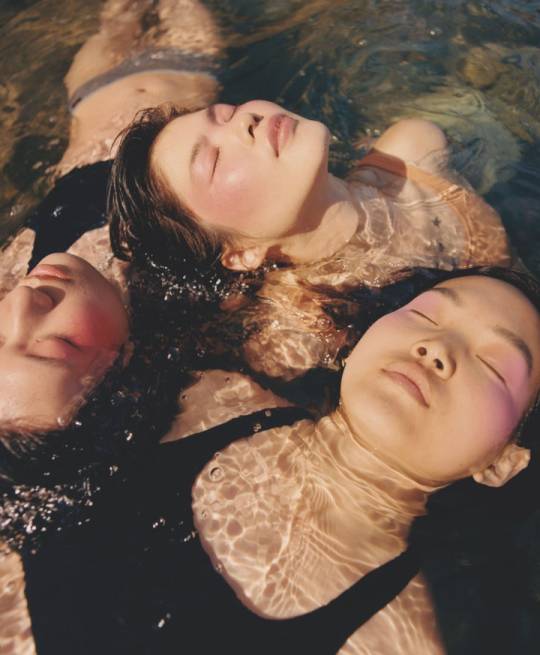
C/O Berlin Magazine | It’s a space for everyone, and everyone can come in — Thoughts for the future
“I cringe when I hear words like ‘diversity’ and ‘inclusion.” To quote the civil rights activist, philosopher, and writer Angela Davis, “diversity” and “inclusion” are terms that you, dear reader, might have also stumbled across in recent months, whether you wanted to or not. Inspired by global Black Lives Matter protests, mainstream media, corporations, and other institutions finally realized – in some cases as it seems overnight – that racism is also an intractable problem in Germany. Unfortunately, we need more than just hollow words and empty promises to solve this problem. You might be thinking to yourself: “But didn’t people take to the streets or write opinion pieces in newspapers to protest structural racism? And didn’t major institutions promise to offer diversity and inclusion workshops in discussion after discussion on television?” Perhaps, but don’t be fooled. Instead of critically questioning the role that white decision-makers play in perpetuating systemic racism, “society” was blamed. Over and over again, Black* people were asked to answer if they had really experienced racism through scrutiny of their real-life stories, while predominantly white “experts” were invited onto talk shows to discuss the so-called “racism debate”. Profound, structural changes are still lacking, at least as of the time this text goes to print.
Presence equals power. This brings us to the current moment where you are reading these words about British photographer Nadine Ijewere’s solo show at C/O Berlin. Nadine Ijewere is the first Black woman to be given a space that has previously been occupied almost exclusively by white men. As such, this exhibition is significant not only for Black photographers, but for everyone more used to being treated as the object than the artist or curator in spaces like this where many people don’t feel welcome or simply don’t exist. As trivial as it may sound, visibility comes from being able to hang pictures on a wall—or write these lines.
Joy as an act of resistance. Nadine Ijewere belongs to a generation of artists and creatives who have realized that there are more options than simply following the traditional path. Knowing that society has long since changed—even if many gatekeepers in fashion, art, and the media still cling to the status quo—this DIY generation is creating its own platforms to elevate their own role models with an army of loyal followers. In their work, representatives of this generation create worlds that rarely center Eurocentric beauty norms. The same goes for this young British artist, whose work shows people in all their beauty and uniqueness. Her photographs regularly appear on the pages of British, American and Italian Vogue, i-D, or Garage, and she has collaborated with brands such as Nina Ricci and Stella McCartney. Ijewere proves that beauty is multifaceted and that fashion is fun and for everyone.
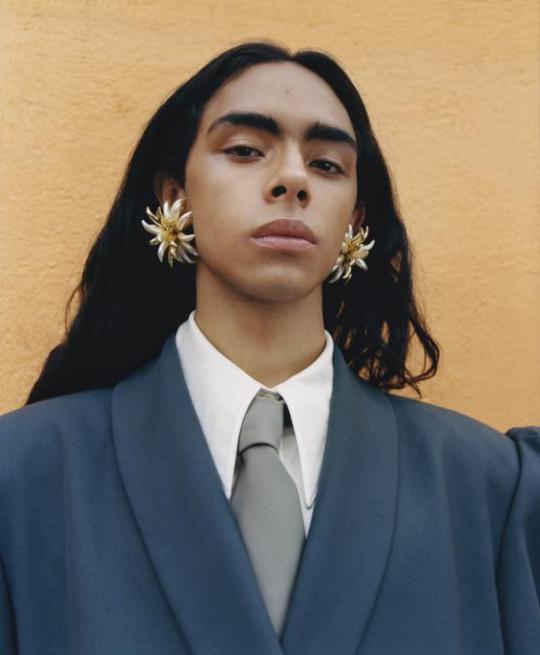
More than a seat at the table. When artists like Ijewere make it to the top, it’s not because of nepotism, tokenism, or diversity as a trend, but despite all the obstacles that have been put in their way. And instead of assimilating after being accepted by the old guard, they continue to write their own rules. In Ijewere’s case, this means not only working with diverse models and teams, but also passing her knowledge on as a mentor to keep the proverbial door open. She’s less driven by the desire to stand out from the mainstream than she is to give back by inspiring younger generations, who are able to see themselves in magazines. “Within the time I have, I’ll use every opportunity I get and every space I can get into to expand the horizon of others.”
Representation matters. Celebrating Black people and people of color in a traditionally white space was also the goal of “Visibility is key – #RepresentationMatters,” a watershed moment for the German lifestyle magazine industry when it launched on vogue.de in spring 2019. The goal was to take first steps toward a forward-thinking future where inclusion and diversity would no longer be mere buzzwords, but lived practices. Part of that effort meant ensuring representation in front of as well as behind the camera. The results weren’t perfect and they might not have led to social change, but we proved that there isn’t a lack of creative talent among Black and Brown people in Germany. If anything, we proved that these talents are often denied the space to develop their full potential.
Ideas for the future. As you see, dear reader, it takes teamwork to bring about long-term change, and for the first time the doors are open a bit. Nadine Ijewere's exhibition shows this, as does being able to write these very words in the C/O Berlin Newspaper. In the statements below, we asked German and international artists and creatives to envision a future where representation and inclusion are lived practices instead of rare exceptions. The results are ideas for a future that is reachable—as long as we all keep working towards it every day. Together.
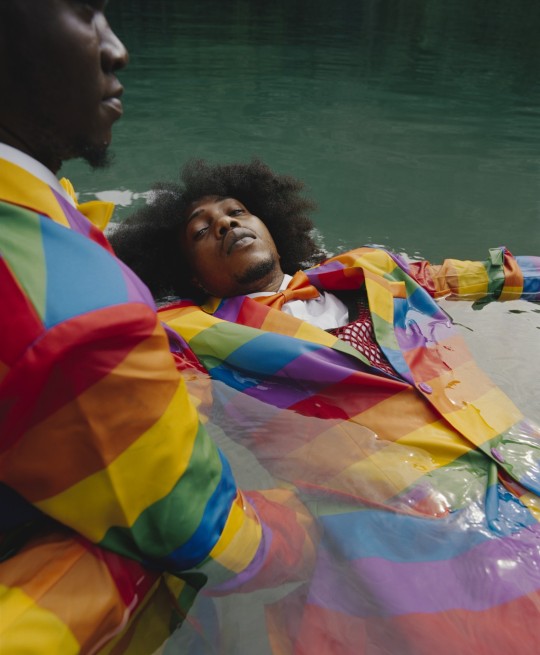
Nadine Ijewere, artist Art is about art. It’s not about you personally. That’s why artists need to be seen as artists. We all get stereotyped and put into the same box—but we have our own identity. We are put into the same space just because we are Black, but we are all very different people.
Edward Enninful, OBE, Editor-in-Chief of British Vogue Nadine is one of the leading fashion photographers of her generation. She’s not only inherently British in her work, she’s also Black British. She really understands the complex mix of culture, fashion, beauty, and the inner working of a woman, so when you see her images, it’s never just a photograph. There’s also a story and a narrative behind it.
Benjamin Alexander Huseby & Serhat Işık, designers for the label GmbH Our work has always been about wanting to show our community and culture to tell our stories as authentically as we can. It was never about “diversity”, but about being seen. We want to create a world where not only exceptional Black and Brown talents no longer have to be truly exceptional to get recognition for their work, a world where we no longer are the only non-white person in the room because we built the motherfucking house ourselves.
Mohamed Amjahid, freelance journalist and author, whose book Der weiße Fleck will be published by Piper Verlag on March 1, 2021. It's time that Black women become bosses. Gay Arabs should get to call the shots. Refugees belong on the executive boards of big corporations. Children of so-called “guest workers” should move into management positions too. People with disabilities should not just have a say, they should make the decisions. Vulnerable groups deserve to put their talents and ideas to work in the service of the whole society. Not every person of color is automatically a good leader by virtue of their background, but all-white, cis-male executive boards are certainly incapable of making decisions that are right for everyone. That’s why we need more representation at the very top, where the decisions are made.
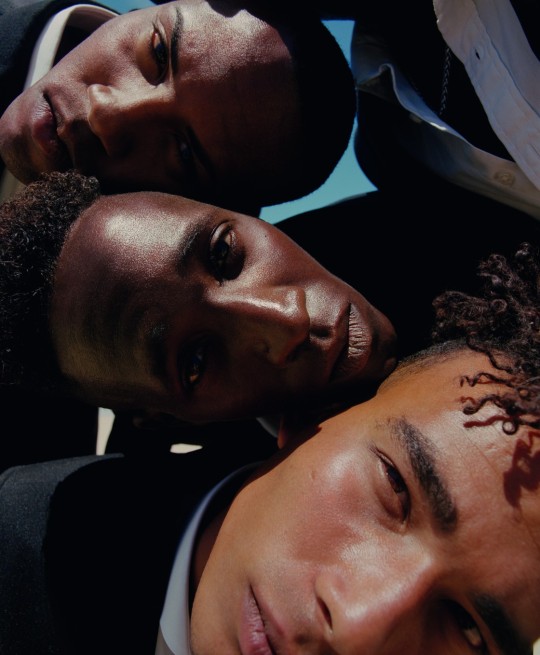
Melisa Karakuş, founder of renk., the first German-Turkish magazine For a better future, I demand that we educate our children to be anti-racist and to resist when others or when they themselves are subjected to racism. I demand that discrimination is understood through the lens of intersectionality and solidarity! I demand that even those who are not affected by racism stand up against it! This fight is not one that we as Black people and people of color fight alone—for a better future, we all have to work together.
Tarik Tesfu, host of shows including the NDR talk show deep und deutlich When I look in the mirror, I see someone who grew up in the Ruhr region and loves currywurst with French fries as much as Whitney Houston. I see a person who has his pros and cons and who is so much more than his skin color. I see a subject. But the German media and cultural system seem to see it differently because far too often, Black people are degraded and made into objects for the reproduction of racist bullshit. I'm tired of explaining racism to Annette and Thomas because I really have better things to do (for example, my job). So get out of my light and let me shine.
Ronan Mckenzie, photographer The future of our industry needs to be one with more consideration for those that are within it. One that isn’t shrouded in burnout and the stresses of late payments, and one that doesn’t make anyone question whether they have been booked for the quality of their work or to be tokenized for the color of their skin. The future of our industry needs to go beyond the performative Instagram posts and mean-nothing awards, to truly sharing resources and lifting up one another. Our industry needs to put its money where its mouth is when words like “support”, “community” or “diversity” slip out, instead of using buzzwords that create an illusion of championing us. How there can be so much money in this industry yet so many struggle to keep up with their rent, feed themselves, or just rest without worrying about money is truly a travesty. If this industry is to survive then we who make it what it is need to be able to thrive.
Ferda Ataman, journalist and chair of Neue deutsche Medienmacher*innen A recent survey of the country's most important editors-in-chief revealed that many of them think diversity is good, but they don't want to do anything about it. This is based on the assumption that everyone good will succeed. Unfortunately, that’s not true. It’s not just a person’s qualifications that are decisive, but other criteria as well, such as similarity and habit (“XY fits in with us”). It's high time that all of us—everywhere—demand a serious commitment to openness and diversity. Something is seriously wrong in pure white spaces that can’t be explained by people’s professional qualifications alone. Or to put it differently: a good diversity strategy always has an anti-racist effect.
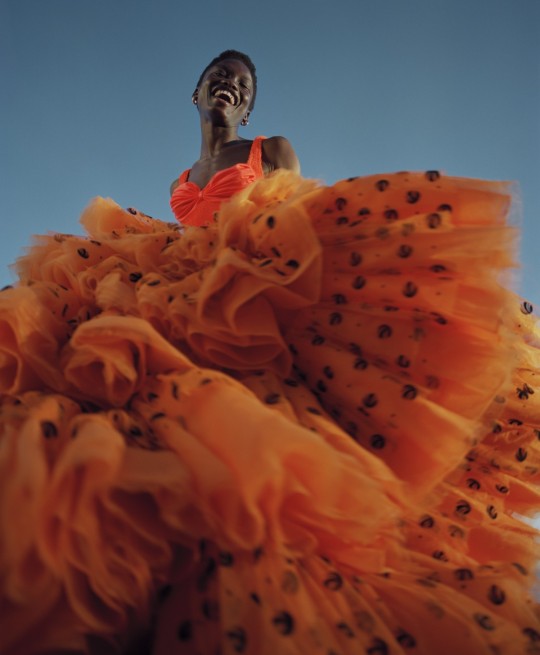
Nana Addison, founder of CURL CON and CURL Agency Being sustainable and inclusive means thinking about all skin tones, all hair textures, and all body shapes—in the beauty industry, in marketing communications, as well as in the media landscape. These three industries work hand in hand in shaping people’s perceptions of themselves and others. It’s important to take responsibility and be proactive and progressive to ensure inclusivity.
Dogukan Nesanir, stylist The current system is not designed to help minorities. By giving advantages to certain people and groups, it automatically deprives others of the chance to attain certain positions in the first place. That's why I don't even ask myself the question "What if?" anymore. My work is not about advancing a fake worldview, but about highlighting all the real in the good and the bad. I strongly believe that if some powerful gatekeepers gave in, if representation and diversity happened behind the scenes and we had the chance to show what the world REALLY looks like, we wouldn't be having these discussions at all. I don't just want an invitation to the table, I want to own the table and change things.
Arpana Aischa Berndt & Raquel Dukpa, editors of the catalog I See You – Thoughts on the Film “Futur drei” In the German film and television industry, production teams and casting directors are increasingly looking for a “diverse” cast. Casting calls are almost exclusively formulated by white people who profit from telling stories of people of color and Black people by using them, but without changing their own structures in the process. Application requirements and selection processes in film schools even shut out marginalized people by denying them the opportunities that come with being in these institutions. People of color and migrants as well as Black, indigenous, Jewish, queer, and disabled people can all tell stories, too. Production companies need to understand that expertise doesn’t necessarily come with a film degree.
Vanessa Vu & Minh Thu Tran, hosts of the podcast Rice and Shine It may be convenient to ignore entire groups, but we are and have been so much more for a very long time. We contribute to culture by making films or plays and bring new perspectives to science, politics, and journalism. We’re Olympic athletes, curators, artists, singers, dancers, and inventors. We dazzle and shine despite not always being seen. Because we have each other and we’ve created opportunities to do the things we love. We’ve created platforms for each other and built communities. Slowly but surely we are finally getting applause and recognition for the fact that we exist. That's nice. But what we really need is not just the opportunity to exist, but the opportunity to continue to grow and to stop basing our work primarily on self-exploitation. We need security, reliability, and money. That's the hard currency of recognition. That would mean being truly seen.
*Black is a political self-designation and is capitalized to indicate that being Black is about connectedness due to shared experiences of racism.
Written by: Alexandra Bondi de Antoni & Kemi Fatoba C/O Berlin Magazine April 2021
36 notes
·
View notes
Text
Critically analyzing The All For The Game series
While this may seem like a hit piece on the books I will say that I absolutely adore the books beyond even my own comprehension. I own multiple pieces of fan merch of characters created by Nora and this series got me through incredibly tough times. I enjoy being critical of the media I enjoy so this is in no way meant to hate on Nora or drive you away from reading the books. The series will forever have a special place in my heart I am just a cynical person lol.
The all for the game series really is amazing, though there is subpar writing and glaring plot holes at times. Nora took lots of ideas I’ve never really seen in any other YA novel and ran with them, hell she even had a queer couple that didn’t exist solely for queer bait. I just feel like Nora had lots of ideas and there were so many concepts and half-baked notions of what should happen that not all of them were executed correctly.
I also think her putting out the extra content that contradicts the books multiple times was a poor choice. Yes, it’s great to get questions answered about things but I think if you have to constantly go back in and explain why something happend or when, then you should have spent more time on the books development. I have strong opinions when it comes to the extra content. Part of me believes it shouldn’t exist past answering a few questions about the books, not 300 paragraphs of random reiterations of the storyline and extra side stories that contradict canon.
I think a lot of the series was based on contrived plot points and driven by too many plot devices to make the story seem like a linear progression to me. The readers of this should also read the books on their own and form their own opinions on the book. Nora doesn’t alway do things incorrectly and I will never claim she’s a terrible writer on the basis that she self published the entire series. The books were never professionally polished and I think that is part of what gives this series so much charm. Suspension of belief is needed to read this series and it does inspire feelings of “What the actual hell. Did that just happen?!” Which honestly just shows the creativity of the series and proves that you can write a book full of morally grey characters and it be successful. As stated earlier I give Nora props for never making the main characters queer relationship be the entire focus of their exsistance. She did drop the ball on that when writing Nicky Hemmick’s character.
I also believe that while Nora was amazingly creative with this series, she created a whole new sport and badass characters for Pete’s sake that’s talent. I also Nora didn’t handle many things correctly or with the tact needed to pull certain things off.
Andrew and his whole meds situation paints medication and mental illness in an extremely poor light. I think she just wanted to throw something in to cover all her bases instead of researching pills. I agree it’s not far fetched to say that Andreil never say I love you in terms of vocalizing the words to each other because of the fact that they have their own private version of the words.
What I do find extremely far fetched is that Andrew never ‘heals’. Andrew Minyard goes to therapy even after the mandatory sessions are finished. Andrew agreed to go to joint therapy sessions with his brother to work their issues out! Tell me this man is not healing. Andrew will never not have bipolar disorder because it’s not something to be cured and he most definitely has C-PTSD after all he’s gone through. Those things can’t be cured but they can be managed by having a support system, going to therapy, and talking though issues within your family system. What is Andrew Minyard doing? Exactly that. He’s managing his symptoms which is part of healing, sure he’ll never be ‘normal’ but he’s healing as a person. The mindset that someone will never heal bc of their csa and mental health issues are ‘too bad’ is literally the worst mindset to have and is so damaging!
I also understand that you have to call on some suspension of belief when it comes to Andrew’s sentencing after he protected Nicky during the fight at Eden’s, but the only case I’ve ever personally seen someone be forced to take mind altering medication after a fight and not be sent to a psych ward was in the case of a combative schizophrenic and hurt someone and the person they attacked pressed charges. I find the whole Andrew on medication ordeal both infuriating and incredibly confusing.
Another confusing thing to me is the entire characterizaton of Nicky Hemmick. Can we all agree that it was incredibly uncomfortable? He was written as an extremely stereotypical gay man with rapey ‘undertones’. Who am I kidding with undertones he shoved drugs down Neil’s throat with his tounge and can’t take no as an answer. This being said, I do love Nicky’s character. I just don’t think that someone who was subjected to conversion therapy no matter if they had some to help them work through their internalized homophobia, would act so flamboyantly during the 2000’s. There were still commercials about not calling people gay as a insult, Paris Hilton had to tell people to use the word stupid instead. He was also one of the only explicitly stated characters as being a person of color and while I’d never say that Nora had racist intent behind that writing him as an extremely predatory gay man always rubbed me in an uncomfortable way.
At least he had some semblance of a back story though, due to Mr. Unreliable Narrator Neil Josten it felt like some characters were there just to prove that character’s besides the monsters, a few of the upperclassmen, and riko existed. Riko’s villain status seemed like it was something to make more of an immediate threat to Neil than Nathan. We had to have some reason for Kevin to be with the foxes and to go to a team so ranked down other than just Wymack being his father. What was Riko really there for other than to tell Neil that the Moriyama’s think he’s their property and then get shot in the head? I also think his death was just to wrap things up neatly and provide closure to the reader that all the ‘bad guys’ are gone. Evermore mostly served to further Neil and Andrew’s relationship and to provide extra drama. Nathan was too out of site out of mind to provide any suspense or drama for the readers. Riko was more of a plot device than a character in my personal opinion. We also only have the bare bones of almost all of the upperclassmen’s back stories. All we really know about the upperclassmen is that Dan used to be a stripper and her stage name was Hennessy, Matt’s dad sucked and he was an addict in the past and Andrew was the reason he went to rehab, Renee was in a gang and is a reborn Christian, Allison had an ed and was disowned and who cares about Seth because he was just killed to bring the foxes together. Was the team so dysfunctional Nora had to kill a man to get them to work together? I feel like his death could have been avoided and was completely meaningless. I enjoyed the the books but at times it was a complete information overload and I can’t even imagine how Neil felt in the situation when I as a reader will never had to deal with that firsthand.
#aftg#all for the game#tfc#andrew minyard#the foxhole court#neil josten#andreil#aaron minyard#palmetto state foxes#aftg analysis#aftg textpost#aftg shitpost#all for the game hc
186 notes
·
View notes
Text
New 52 TEEN TITANS #3 Read Along - The fact this got made is still shocking.
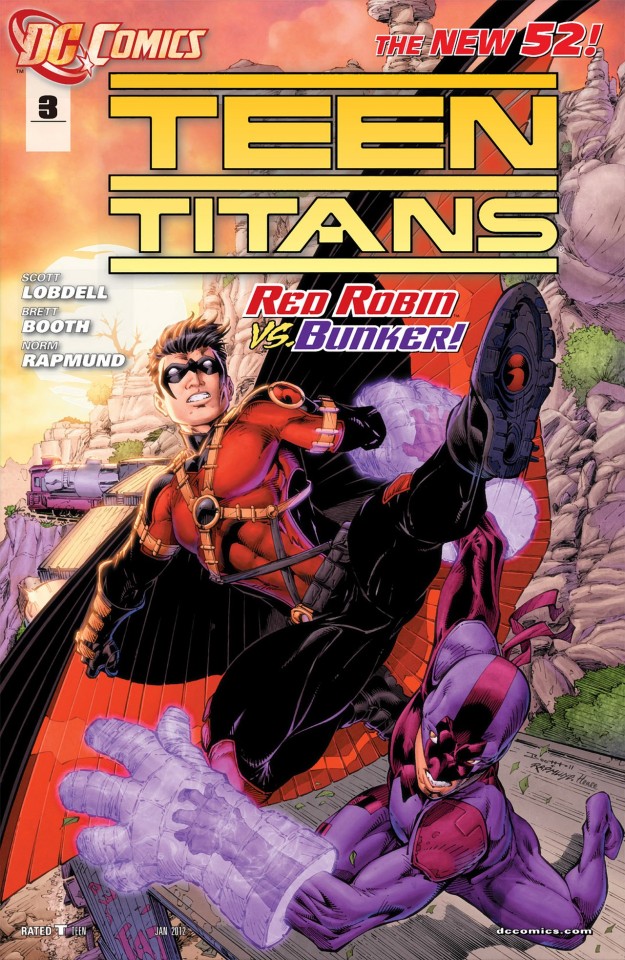
It’s been a while since I done one of these. It’s probably been since last year or so. This isn’t so much of a formal review where I try my best to explain why something doesn’t work, with tons of back references, or interviews, and contexts, and such. I might do some of that, but I’m mostly just writing this along the same time I continue to read it.
I’ve already done the first two issues, and if I can I’ll link them in the post somewhere.
Basically, this series gets about everything wrong about the returning Core Four for this reboot. They made Cassie the tomboy a “girly” thief, Conner the punky flirt a creepy emotionally numb stalker, Tim the insecure dork a super genius that blew up part of a freaking skyscraper, and Bart the teen with an attention span problem into an arrogant jerkwad loudmouth.
With the origins later given in the series, the boys are revealed to not reaally be the characters we knew at all in a more literal sense. This Conner is a clone of an alternate version of Jon, not Clark and Lex. This Tim Drake, is literally only Tim Drake in name only, as that’s the name this teen got in witness protection. And this Bart Allen, isn’t even related to Barry.
So these are versions of the characters that are them in literally name only, bar Cassie (sadly). Although, they’d later retconned Tim’s origin back (which doesn’t make sense). But what else can I compare them to but the originals?
--
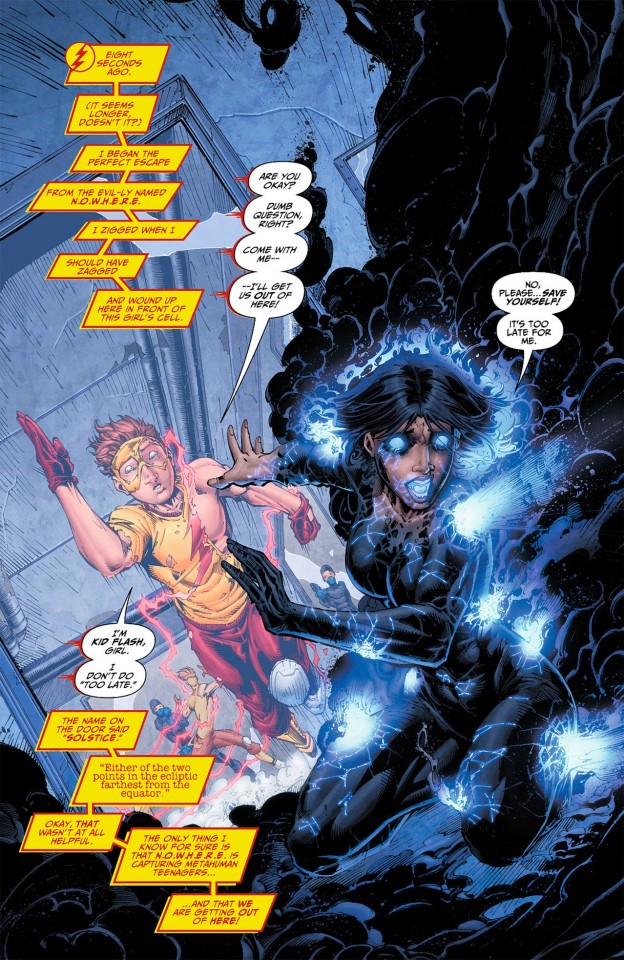
A really common criticism of this series, and one that’s pretty dang valid in my opinion. Is just how unlikable everyone is-- or at least the Core Four, because I feel like we can all be honest and say that most people just read this for the Core Four, and sometimes Bunker. (Like Bart’s condescending here. Like “I’m Kid Flash, girl.” Maybe I’m just reading it too 1940s, but it comes off as really dickish.)
I mean seriously, how many people do you know talk abut Skitter? The original characters that Lobdell came up with are really hit and miss for me, mostly miss. Because I find Skitter so forgettable, that even though I’ve read the first few issues of this series just for entertainment value, I still forget she exists. She could’ve been so much more interesting, but he just doesn’t give her much.
To me, a good character has a personality that you can notice, grab onto, and have lots of unique stories with, that simply work, not even because it causes a great drama, but just because the perspective the character will have in any situation depending on the circumstance will be interesting.
Which is one of the reasons why I find Tim an interesting character, because his perspective is one that’s very interactive with any given circumstances but will still work for me. An insecure, super hero fanboy, that’s doing his best to be brave, but is secretly scared, with the cleverness to do things, but the anxiety that he can’t. Which the circumstances they give him, like having to make sure he proves he should be Robin, having parents at home, not feeling like he’s good enough, constantly seeing others better them him. It’ll just make him an interesting perspective to read from that won’t get too repetitive in any way that interferes with the enjoyment, because there’s a lot of levels you can take his harsh feelings, or things to interact with, that it won’t always be predictable what’s going to happen with him, and you want to read to see more.
With this series and quite a bunch of other original characters made, they have soap opera writing. Which works with fleshed out characters like the iconic 80s incarnation of the Teen Titans, but when the new characters don’t have a well-formed personality that you can really grab onto and gain constant interest and intrigue from, you just have a lame duck.
When your main character’s traits are “I’m angsty and sad”. No one is going to be able to invest themselves with that. They need to be more third dimensional and genuine to make them a character you want to pick up each issue for.
This series even with the old characters fails at that, by making them into absolute butchered heaps of rotted rump rather than their full personalities.
At least the art is pretty creative early on in it’s second page, I will give it that.
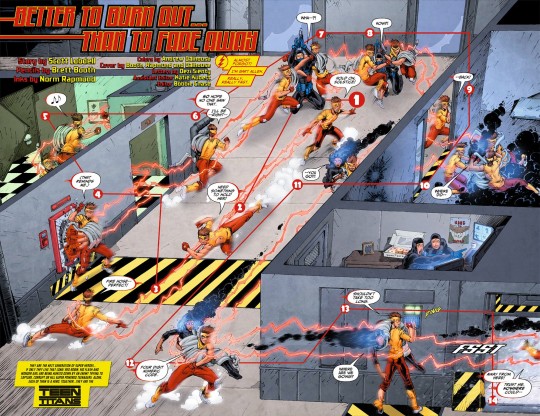
--
Then there’s Bunker--

--who I really want to like, but just can’t find myself enjoying.
A lot of these characters I’m unfamiliar with I want to like. They’re minority characters with very interesting concepts, but writing so flat that it ruins any chance of paying attention to them. A common curse when it comes to POC and a bad writer like Lobdell.
But Bunker actually has a personality, but the reason why I can’t find myself attaching myself to him is because he feels like an uncomfortable stereotype character. An outdated one that you’d see in the 80s or 90s to either seem inclusive or use as a joke rather than a true deal character.
Bunker is a flamboyant, religious, fashion involved, gay, Latino. Something that feels like you’d really bet he wouldn’t be if he wasn’t gay or Latino, because it’s just all based in stereotypes. Like if the pages weren’t colored, and you didn’t have the context he was gay, you’d probably still guess what he’s supposed to be just because of how much they involve stereotypes with him.

However, despite the stereotypes, he is the one most people can remember from this series beyond the core four, because he at least has a personality, and they actually try to build up a unique mystery to him, that would make you want to continue to know them.
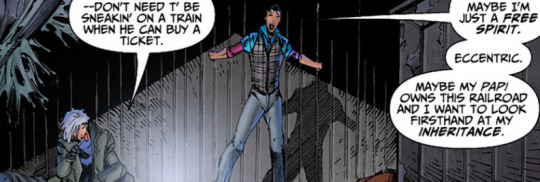
And there is something about his confidence and religious beliefs, and determination that does feel very genuine, and makes you actually like him despite the stereotypes.
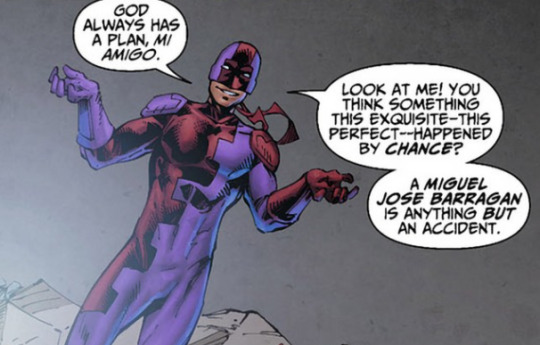
You want to know what makes you able to tell he’s a better made character than the other relatively new, to straight up new characters? You can actually talk about him, and have a lot more to say about them then his backstory, two personality traits, and angst. Even if his personality seems limited at first, they still write it in a way that’s genuine enough that you can get more out of it, a lot like what I was describing with Tim earlier.
He still feels like a character that you could write a solo about, and with a good enough writer and personal life, would actually make for a very rereadable series, because you just enjoy seeing him on his journey, because it won’t always be the same exact things. He has loyal personality traits about him, but depending on his circumstances, it won’t be the same side of him you’re seeing, and it won’t feel contrived. He has potential to become a true third dimensional character, and not one that just feels like he looks like one, but isn’t really.
But that depends on where the writing goes with him-- and I can’t remember where it goes. But take away the dated stereotypes and there’s actual good potential with Bunker. Making your character feel like another decade’s minority caricature is kind of a turn off when it comes to feeling comfortable reading them.
Which is why some don’t tend to like him.
--
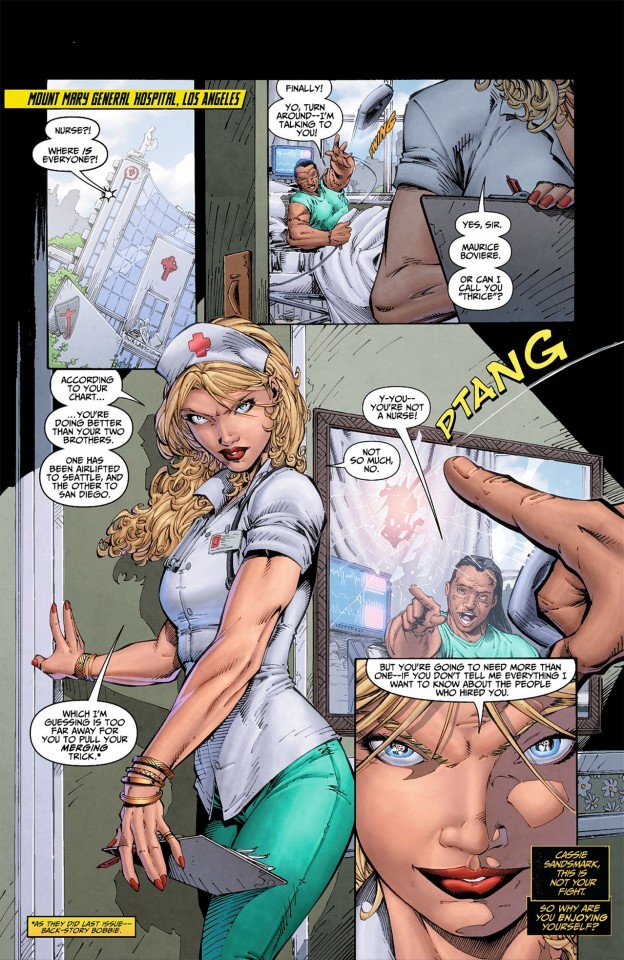
There’s not a lot to say about this quick page of Cassie, besides the fact they make her come across as apathetic and nuts. She’s also mildly sexualized given it looks like she’s posing for a fashion shoot and not just closing a door, which feels pretty typical of the team that made this book.
--
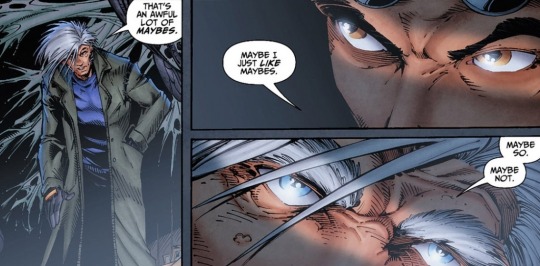
And because of Lobdell’s bizarre writing and tone changes, I don’t know if this is supposed to be taken as serious or comedy, because of how abrupt it is, and how a fight broke out right after and we find out the old guy is Tim somehow convincing someone he isn’t like-- 15? I think he’d be either 14 or 15, not because that’s how Lobdell intended him to be, because I believe in a now lost interview he said Tim was “probably” 16 or 17. However, they didn’t settle on Tim’s age till Damian was near thirteen, meaning Tim would’ve been either fourteen or fifteen here, depending if Damian was eleven as I remember, or ten at the start of the New 52.
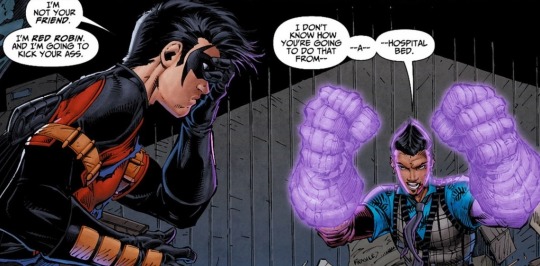
And here’s some more out of character Tim, because New 52 is what you get when you skim through Red Robin without any context, and being edgy is still really popular with the teenage demographic at the time.
This is a Tim that blew up a building, is an incel towards Cassie, and is overall an arrogant prick.
How Lobdell thought anyone thought any of a good idea is beyond me, but I figure he’s just not self-aware enough to realize that he just made one of the most unlikable protagonists I’ve ever seen, and absolutely bastardized who was once a mega-fan-favorite.
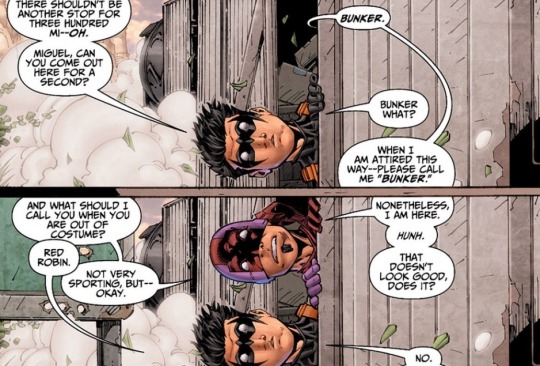
Although, this is pretty cute and in-character. It’s something that definitely fits in with a classic Tim comic, but down let this make you think Lobdell knows how to write Tim, because he makes it really obvious all the time that he doesn’t really.
--
And that’s basically everything relevant that happens in this issue-- not a lot when you actually read it, and not just me spouting off the proverbial mouth as I try my best to mentally process this freaking comic.
Conner doesn’t even show up, most likely because he was the only one with a solo, that Lobdell was also writing (you can probably guess accurately what the quality of that was too).
A lot of it is just more of the same, and it’s tedious, although it’s tedious nature is not so much on Lobdell, as he’s said in interviews before that it was editorial or a publisher (I can’t remember to be honest) that made him not have them previously know each other. So he had to work from that.
Which goes to show just how much DC knows how their characters and teams work, given the reason why Young Justice worked so well was because Tim, Conner, and Bart, already had stories where they duo’d up, and teamed up before they were even official. Which allowed them to have a preconceived friendship, they could build dynamics that were naturally built off of their unique personalities, which made everything feel natural and good to go when they did have an official team comic.
Here you have a Tim, that’s supposed to be very much a rookie of only one year, acting like he’s the greatest protégé talent ever, searching out for metahumans and coincidentally running into them, just to make some kind of story that would explain them being together for a team.
I’m not saying they have to redo the duo stuff again, because I’m pretty sure most readers already know their dynamics, and as for new readers, it doesn’t take a lot of time to say “We’re just good friends that like hanging out” does it? They have issue zeroes for each comic for a reason, they could’ve easily had a nice summary there if they wanted.
New 52′s obsession with trying to fit everything they can in, but have everyone still be relatively new, made everything a mess.
Like isn’t it weird that Superman only started being a super hero FOUR YEARS before Tim was? Doesn’t that sound entirely too squeezed in?
Then because they messed with the characters so much it works less for old readers as well. Like they have Tim, only a year in, acting like all the out of character elements of Red Robin, with an origin that’s a Bizarro styled mirror of his original one, with nothing that made him the popular character he used to be.
Same for the others.
New 52 is partially scary, because it shows just how little they know about what made them work.
I’m not against reboots in comics as a concept, they do need some modernization, and clean-ups every now and again, but you have to keep what works in there, or else the reboot will be a total failure. And paint-jobs and fan service like Rebirth aren’t gonna work either, when the heart of it all is still just so bad.
All this is a lot easier to say in hindsight, but DC Comics really has to work towards remembering their mistakes if they actually want to get better again. They’re doing a bit better at it, as forced and contrived as it can be sometimes. So they are getting somewhere.
But this is only the start of a Didio-less era. Looking like good things are coming, and little presents that truly make it seem true, is something that’s only going to last for a little bit. They have to still do the work, and learn what worked for their characters in the first place, and reremember who they all are.
Otherwise sales will just get worse again.
But I’m genuinely hoping they’ll at least begin to learn from mistakes. No one gets a win otherwise.
--
Oh, and he’s the entirety of the fight advertised on the cover. “Red Robin vs. Bunker”.
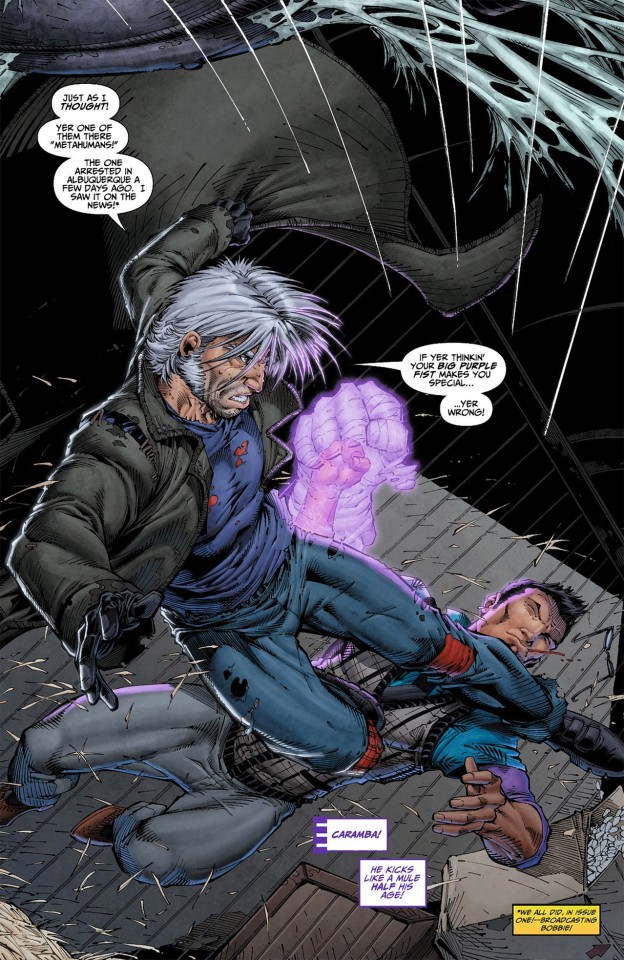
They stop fighting right after this.
It’s the comic book equivalent of clickbait if I’ve ever seen it in my entire life.
#Tim Drake#Robin#Red Robin#Bart Allen#Kid Flash#Cassie Sandsmark#Wonder Girl#New 52#Teen Titans#DC Comics#Only tagging them because odds are those are the only tags people will check
36 notes
·
View notes
Link
Important quotes to take from this article, that sums up perfectly why Daenarys’ treatment in season 8 was so heartbreaking..(long post with bullet points for easy reading):
Game of Thrones is "a world where women are often treated as disposable objects, Daenerys outwitted and overpowered her male enemies. As the sole protagonist in her own storyline, far from the rest of the characters, she was set up to be one of the few unambiguously [female] heroic figures in the series."
"in just a few episodes, she quickly transformed from a woman who has prided herself on saving the downtrodden to one who burns the innocent."
"[Daenerys’] treatment this season from the makeup of the writers’ room: The writers and directors on the show have always been overwhelmingly male, and women were shut out of both writing and directing jobs for every episode in season 8."
"Throughout her life, Daenerys has shown a commitment to justice...She freed the slaves in Meereen... When Drogon burned one child, she chained up her other two dragons, leaving herself more vulnerable...She put her fight for the Iron Throne on pause to fight in Jon’s war against the White Walkers [in the North where she knew she would feel unwelcome]."
"She was called the “Breaker of Chains” for a reason. When she misstepped, we forgave her, as we forgave, say, Tyrion for strangling Shae." [And Jon for killing a child for betraying him!]
“Daenerys has certainly used “Dracarys” to punish plenty of people during her reign... she always gave some compelling reason for doing so.”
She first used her dragon’s fire to kill a warlock who tried to imprison her, and again against a slaver who tried to cheat her...she crucified all the masters in retaliation for them having killed slave children — but they had killed children...She burned all the Khals who were threatening to keep her as a slave or rape her, or both."
Dany’s advisors gave awful advice:
"Daenerys agreed to make Tyrion her hand because Tyrion said he “knew things”...specifically, he claimed to know how to make alliances in Westeros and exploit people’s hate of Cersei in order to put Daenerys on the throne. Except, Tyrion did…none of that."
"...when did Tyrion convince a single lord that if they joined their side, they could get a new title and nice castle and see the land’s most hated woman [Cersei] burned to a crisp? Never."
"...what Tyrion did do: Try to cut a deal with slavers that would have kept slavery legal for a longer period of time, until Daenerys decided to burn their ships instead; convince Dany not to fly to King’s Landing and burn the Red Keep, which would have resulted in far fewer Kings Landing deaths; come up with the horrible plan to capture a wight that almost got Jon killed and lost Daenerys a dragon and still didn’t earn Cersei’s allegiance; convince Daenerys to trust Cersei, who has never proven herself to be trustworthy; forget to remind Daenerys that Euron and the Iron Fleet would almost certainly be waiting near Dragonstone, thus losing Daenerys another dragon; free Jaime from captivity in an effort to help both his brother and Cersei escape death at Daenerys’ hands..."
"Don’t even get me started on Varys, who didn’t write a single letter to a single lord to gain intel against Cersei or an ally for Dany but did find time to spread the word about Jon’s true parentage...”
“Tyrion and Varys were supposed to be her helpers. They failed her. Instead of owning up to this and realizing the part they have both played, Tyrion and Varys begin to worry that Daenerys is a flawed ruler exactly because she’s losing faith in them over their terrible decisions."
On the Sansa v Dany struggle:
"...The writers of the show cited much more petty reasons for their [Sansa and Dany's] conflict: “[Daenerys is] also very pretty, and how much does that factor in? Sansa starts off this season very suspicious and not at all friendly with Dany.”"
Her Isolation:
"In the last few episodes, Daenerys finds herself envying the love that Jon’s people feel for him...it’s destabilizing for her to arrive in Westeros and find that people are not eager to see her. Why, exactly, the Northerners don’t appreciate her dragons — without which they could not have defeated the Army of the Dead...."
"Daenerys rightfully glowers at Jon as his countrymen celebrate the fact that he mounted a dragon a couple of times when Dany has been riding one for years [Not to mention she is the first Targaryen in hundreds of years to have successfully mothered & raised/trained dragons]...In a mission to make Dany feel as isolated as possible, the show killed off her closest advisors, Jorah and Missendei."
"Daario is controlling Slaver’s Bay in her absence. Yara Greyjoy is sworn to her. In theory, the new Prince of Dorne would be allied with her since Daenerys struck a pact with Ellaria Sand. Daenerys could have called on any of these allies when she faced Cersei’s army but didn’t — simply because the show needed her to be alone ."
On Missandei:
"Game of Thrones fridged Missandei. There’s no other way to put it. Her capture and death happens just so Daenerys would feel isolated. The fact that the writers turned the only major black female character on the show into a device to motivate Daenerys feels even more cringeworthy."
"The fairly quick transition from complicated hero to totally mad villain leaned heavily on an oft-repeated line: “every time a Targaryen is born, the gods toss a coin”. But should Daenerys’ Targaryen blood necessarily doom her? After all, Jon is half Targaryen, too. So why does he get to sit comfortably on the other side of the coin?...The show has long been obsessed with various characters’ struggles to shake their family’s legacies. Tyrion killed his own father and joined Team Daenerys, only to betray Daenerys in order to help his family again."
"Daenerys has long tried to differentiate herself from her father, the Mad King, only to become her father’s daughter."
"...the show’s most recent plotting flaws was Varys’ rushed decision that Daenerys was a terrible enough queen that he would endeavor to poison her — quite a stretch for a man who served under King Joffrey...Remember that Varys once wanted to put Dany’s brother Viserys, a demonstrable megalomaniac, on the Iron Throne."
"...when Varys found out Jon was a Targaryen, he began openly conspiring to undermine and overthrow Daenerys...He accused her of being paranoid while simultaneously conspiring against her, which means she had every right to be suspicious...Again, it’s a failure of the show that the man who was once revered as Master of Whispers walked up to Jon in the middle of a crowded beach and suggested he usurp Daenerys."
"Other rulers we think of as heroes in this story have executed men for less than attempted murder: Robb Stark executed Rickard Karstark for killing the Lannister hostages, against Robb’s orders...Ned Stark executed someone for abandoning the Night’s Watch...Jon Snow executed the men who succeeded in murdering him (before he was resurrected) including Olly, a young boy."
"...Jon betrayed Daenerys’ trust by telling his family, and Tyrion betrayed her — twice. Davos also betrayed her too for totally inexplicable reasons by helping Tyrion smuggle Jaime to Cersei...Her advisor’s lie to her and gaslit her, plain and simple. And yet the way that Daenerys’ destruction of King’s Landing is shot, we are supposed to see her as the irrational one and Tyrion as one of the victims of her terror."
"...either due to time restrictions or lack of source material or just plain lack of creativity, the show took shortcuts this season...And those shortcuts tended to rely on the laziest of sexist stereotypes about crazed, power-hungry women."
"Maureen Ryan at the Hollywood Reporter put it best: “Inescapably, infuriatingly, what we’re left with is apparently the central message of Game of Thrones: Bitches are crazy.” "
"...Had [Dany's] paranoia been seeded many episodes ago and grown over the course of several seasons, it would be an epic Shakespearean tragedy. Instead we must infer this descent based on her frizzy hair."
"Worse, the moment when she seemingly decides to rule with fear, not love, comes after she’s romantically rejected by Jon...” [Suggestible that the lack of requited love is a strong enough reason for a level-minded strong woman to fall into a pit of craziness, despite all the good she has ever done and vows to continue doing..]
"Varys suggested that Jon would be a better ruler exactly because he did not want to rule. Figures in mythology and history ranging from Moses to George Washington to Harry Potter have been heralded as heroes because they came to power reluctantly. Those figures also tend to be male. How do our stories cast women eager for power? As evil queens. And now Daenerys is a cliché."
"There have been a lot of problematic characterizations of women this season, as revealed by the writers’ own commentary surrounding the episodes...Sansa essentially parroted what the writers have been saying for years about her rape by Ramsay Bolton — that it made her stronger...and the showrunners called Cersei, one of the smartest, most vicious characters on Thrones, “just a girl who needs the comfort of a man..”
"...in the end, Daenerys cycled through several tired stereotypes: Another evil, power-hungry queen literally shot with a dragon’s wings behind her; the crazy lady that a noble man has to heroically overcome..."
Like Cersei, Dany was a character introduced in the first episode, who ws incredible meaningful in the narrative of Game of Thrones. Instead of going out with a bang, Daenerys’ death wasn’t a bang like she truly deserved, but a whimper and forgotten to emphasise the man’s conquer and victory.
6K notes
·
View notes
Text
Why Brandon Sanderson Is an Amazing Writer (and Why You Should Read His Novels)
Last week I was recommending some novels to @bosstoaster and was really struggling to not fan squeal all over the place about just how incredible Sanderson’s novels are. Usually, when this happens, I try to pick 1-2 things I like about his writing to talk about, so I don’t talk a person’s ear off...but that usually means so much gets left out.
But I’ve been thinking about it since, so you know what? I can do whatever I want on my blog. So here’s my full, unadulterated breakdown of all the things that are so damned incredible (and consistent) about Brandon Sanderson’s novels (as well as his writing methodology).
Does contain minor spoilers, but not for anything huge, and I tried to keep even the minor spoilers vague.
PLOT
Incredible world-building—that isn’t generic medieval fantasy-land
I love fantasy as much as the next person, and I enjoy most generic medieval fantasy stories if the plot or characters are great. But Sanderson’s always exploring different kinds of worlds, and entering them is always engaging. Magical cowboy western? A world continually buffeted by enormous hurricanes on a regular basis, so everything evolved to survive them, including the flora and fauna? A world where ash constantly falls? A world that is literally the embodiment of thought and concept? There’s always something exciting to discover.
Incredible magic systems
Like the generic medieval fantasy world-building, I’m used to the D&D style magic systems with energies and fireballs. Sanderson doesn’t touch these kinds of magic systems, though, and I’m continually stunned at just how creative the ones he does use are. Ingest metal, and use it to activate a latent power of yours? Bonding with the literal living embodiment of a concept in order to gain abilities? Re-writing the history of an item so it believes it can be different, and it changes? Using color as payment for a system based entirely around souls and soul coding? The list is long and always entertaining. He’s even written a whole article about how to design magic systems, which is also worth a read.
Really good at the ‘good’ kind of plot twists that leave you genuinely satisfied
I know we’ve all been frustrated by the recent trend that media seems to have these days: viewers or readers guess the direction the plot is heading in, and creators, in a panic, throw in a completely unrelated plot twist (changing the whodunnit, killing off a character, adding a resolution that makes no sense). Those suck. Let’s be real.
Sanderson does the opposite. He leaves the clues in his stories—they’re always there, and you can figure it out with the context clues, if you’re clever. If you’re not, he’s real good at throwing in twists that are hinted at, but still feel incredibly impactful and really satisfying. The end of The Emperor’s Soul still gives me chills, and I still love the twists regarding the big bads in Mistborn and The Stormlight Archive.
Also? He genuinely will catch you by surprise, sometimes. I consider myself to be a pretty experienced reader, and a decent writer. I can usually tell where plots are going for most stories. That’s satisfying, of course. But Sanderson has a way of still managing to sucker-punch me with a plot twist or reveal that feels shocking in a good way. I don’t see a lot of these coming, but the result isn’t disappointment, it’s a “holy crap—wow, how cool!” followed by an intense desire to reread half the story to pick out the clues that were sitting in front of me the whole time, now that I know what they’re actually for.
Really interesting meta-level stories
Depending on how invested you want to get, there’s a meta-level of interconnected story with the Cosmere. All of Sanderson’s stories are enjoyable on their own, and you’re never required to go deeper. But if you want to, you can, and suddenly there’s a whole second layer of information and characters in the background that you never really noticed, because most of his stories are actually connected to each other too. You don’t have to know who Hoid is or how he contributes to each separate story, you don’t have to be able to find the crossover characters that have literally crossed over from other books, and you don’t have to understand the whole Shards angle, and you can still enjoy all those books on an individual basis. But when you do know how to spot them in the narratives, it’s really fun, and you feel like you’re in on a great secret.
CHARACTER
Only male author I’ve ever read that actually writes GOOD female characters
Brandon Sanderson seems to have hit on the not-so-secret secret that most male authors—who dominate the fantasy genre—haven’t seemed to figure out yet: women are people too.
Consequently, Sanderson writes incredible varieties of female characters, each with their own personalities and quirks, who don’t necessarily fall into the “damsel in distress” or “masculine-coded action lady” stereotypes. See the politically savvy Sarene, the scholarly Shallan, the clever and artistic Shai, rebellious and somewhat childish Siri, the formal and analytical Steris. (These are literally just the ladies with names that start with S).
But it gets better. Because even with action-hero ladies, they still have characterizations outside of ‘being a lady that beats people up like a man and strives to be as unlady-like as possible to prove she can beat people up like a man.’ Vin might be an action heroine, but she’s also a young woman who’s learning how to have a family, who’s scared of opening up to people, and who’s insecure about her place in the world. Marasi wants to be part of law enforcement, but admits to another character that she also likes the make-up and dresses and looking pretty—and she hates that people expect her to be a masculine action-lady that wears pants and starts fights, because she feels like she won’t even be seen in her field if she doesn’t, and like she has to represent all women.
But I think the biggest example of this comes from his short story Shadows for Silence in the Forests of Hell, which (despite its edge-tastic title), is about a mother trying to protect her daughter. Sanderson wrote it as a part of the anthology Dangerous Women, and in his post-script on the story in Arcanum Unbounded, he writes:
“I thought for a long time about the nature of an anthology called Dangerous Women. I worried that the stories submitted to it might fall into the trope of making women dangerous all in the same way....I didn’t want to write just another cliched story about a femme fatale, or a woman soldier who was basically a man with breasts.
What other ways could someone be dangerous? I knew early on that I wanted my protagonist to be a middle-aged mother.”
In short, Sanderson actually understands how women work and writes actual, believable, likable female characters, who are just people and not sexual objects or prizes for men to receive at the end of the novel. It’s something we need, and it’s refreshing to see.
But on that note—he’s not afraid to let his male characters be softer either
In the same way that most female characters in fantasy are forced to be masculine-like action ladies, most male characters are also forced into the same role. There’s this misunderstanding that male characters have to all be sword-swinging barbarians who can’t have emotions.
Sanderson punts this misunderstanding out the window and will have none of it.
There are so many good male characters in this series too that don’t immediately make you want to cringe. Look at Elend, who’s an intellectual doing his best but genuinely screws up a lot, and is all but useless for the first half of the series as a combatant. Look at Wayne, and his heartbreaking moment at the end of Bands of Mourning, who grieves for a person who’d been family to him and isn’t afraid to show how much he cares. Look at Adolin, who seems like the quintessential sword-swinging action-oriented jock, but then completely subverts all expectations by patiently and carefully helping characters with mental illnesses deal with them on their bad days, and being unhesitatingly supportive of his autistic brother. Look at Gaotona, who spends the whole book trying to educate someone on how they’re wrong—only to learn from them instead, and realize he was wrong, and to admit to it.
Men have their soft moments, written by a male author who’s not afraid to put those moments into his works. And that’s really good, too.
In general, just really good characterization
Sanderson’s characters feel like people. They have oddball quirks, realistic-sounding conversations, and occasionally do things that make no sense. Just like friends, family, coworkers, etc that you and I all no doubt know. Hammond’s philosophical rambling (and Breeze’s frustrated bickering over it), Lift making it her life goal to steal dinners, Wayne’s justification for his kleptomania since he ‘trades’ items instead, David’s weird speech patterns and idioms—these characters are just fun to read, and have extra layers that just make them feel more real.
His books have a strong non-romantic relationship focus
Media in general is inundated with romantic and sexual relationships, and doubly so for fantasy novels—especially when fantasy novels often have a ‘prize’ romance at the end of the epic journey. Save the girl, get the girl. It can be frustrating, especially for people who aren’t interested in romance as a genre (there is a reason a lot of us are reading fantasy novels, and not romance ones).
Sanderson loves focusing on all kinds of relationships though, not just romantic ones. Found family, real family, strong platonic friendships, mentorships, interesting rivals, bonds out of duty—they’re all in here, and Sanderson’s not shy about making it clear. Look at Kelsier openly telling Vin he wishes he and his wife had a daughter like her and admitting he sees her as one, or the way the rest of the team turns her into their little sister that they all teach and protect. Look at Wax taking in Wayne, a scared kid who’d gotten in over his head and didn’t know what to do. Look at Kaladin looking at an entire band of slaves and going, ‘yeah, you’re all mine now and I protect you all,’ and how he forms a whole family out of Bridge Four that ultimately turns around and takes care of him, too (and of course, a lot of Kaladin’s story is driven by his own relationship with his actual family, specifically his younger brother). Look at Shallan doing all that she does at the start of the series to protect her brothers. Look at Prof struggling so hard to protect his little band of Reckoners even as he struggles to protect them from himself. Look at Shai and Gaotona, how they’re set up as prisoner and jailer, and yet they grow to ultimately respect each other.
I could go on and on, but the point is, these non-romantic relationships are everywhere, and they are considered to be just as important as—and sometimes more important than—romantic relationships.
But on the flip-side, his romantic relationships are very well handled
Anyone who knows me knows I’m not a big fan of romance or shipping. It generally doesn’t hold my interest. In most books, I skim or skip the romance parts, because I’m just not invested in those relationships. They feel flimsy.
I don’t do that with Sanderson’s works. They’re the only books I’ve ever read where I genuinely feel invested in the characters’ romantic relationships.
Because here’s the thing: all of these characters that are romantically involved, are also good friends, and that’s the basis of their entire relationship to begin with. And that means these relationships are accessible to everyone, regardless of romantic inclinations or interests.
Adolin and Shallan just joking around and bantering, with him teaching her how to use swords, with her rattling off witty repartee to defend him in verbal spars? When they just genuinely enjoy each others’ company, without having to constantly make out or have sex to indicate why they like being around each other? That’s genuinely fun. It’s some lovely character interaction. Maybe I don’t “get” the parts where they want to do more romantically inclined things, but I can enjoy that they legitimately enjoy being around each other, that they’re good friends as well as romantic partners, and that they trust each other. And that means I can still be engaged in their relationship instead of yawning and skipping ahead a few pages.
Which brings me to:
He also takes common romantic tropes...and throws them in the garbage bin
Sanderson has other ways of handling romantic relationships that I (as a person who doesn’t like romance) finds so impressive it deserves its own section. Because he takes common romantic tropes, and subverts them, and makes the characters all the more healthy for it.
On at least two occasions (in Stormlight Archive, and in the sequel Mistborn series), Sanderson has set up a classic love triangle...and then immediately broken it. In one novel, one of the male love interests graciously offers to back out if it will mean the female love interest is happy, because he really just wants her to be happy even if that means he’s not around, and she chooses him anyway...whereupon he makes it clear he’ll definitely help her with her mental health and he wants to be supportive of her. Holy shit, what a wild notion, an actual supportive character in a love triangle. In the second series, the love triangle gets set up, but ultimately broken when the man ultimately chooses the arranged marriage over the ‘true love’ angle, and then realizes he actually, legitimately enjoys the company of the lady in the arranged marriage, and the ‘true love’ love interest realizes that actually, that would have been a terrible idea and she wants to pursue her career. Again, a refreshing and ultimately all-around healthy take for all the characters on something that normally has some nasty fallout.
In Mistborn, my first introduction to one of Sanderson’s series, I remember being genuinely floored and in awe of Elend’s and Vin’s relationship...because Vin is still really nervous about opening up to people and not comfortable with intimacy, and Elend is completely okay with that. He takes it slow with her, lets her set the pace, and doesn’t force her to do anything before she’s ready. Vin is most comfortable just being around/near him without doing anything inherently romantic, just being in his presence, and he is completely cool with that. And that’s such a healthy thing to see in a romantic story, because it’s really important for readers to see that yes, it’s totally OK to not rush into things, and yes, it’s totally OK for people to take it slower or easier for an uneasy partner.
I could go on and on, but basically, romantic relationships in Sanderson’s novels are also engaging because a lot of the time? They’re healthy, and friendly, and toss most dramatic romantic subplots out on their ass.
While on that note?
He doesn’t do sex scenes
This one might be a loss for some, but it’s a win for me. Depending on how I feel on a given day, I’m either ‘irritated by’ to ‘really uncomfortable by’ sex scenes in novels...and unfortunately they’re prevalent, especially in fantasy novels. I usually end up uncomfortably flipping through these pages, trying to figure out where the scene ends so I can get back to the actual story.
I honestly can’t think of a sex scene in any of his novels though. In fantasy, it’s stunningly refreshing, and I feel super safe and comfortable reading his novels because I don’t have to worry about uncomfortable surprises. Plus, circling back to the above points, it’s kind of nice to see characters having established relationships without it having to be solely reliant on them having a good or bad sex life.
Has LGBT+ relationships
Yup, they’re there, and edge past ‘strongly implied’ to ‘blatantly stated’ in some cases too. Offhand, I can think of a pair of men in the Stormlight Archive who are noted to be in a relationship with each other, and a lesbian gunsmith in the second Mistborn series.
What I find important is not just the inclusion of these blatant relationships, but also how it’s treated as completely normal and not taboo in the context of these worlds, too. Non-straight relationships aren’t treated like a scourge or a difficulty these characters have to deal with; it’s just normal in these realities.
Additionally, what I really like about them is the way other characters will get called out about it if they do cross a line (usually accidentally). In the above cases, Kaladin makes an ignorant off-hand remark about his gay Bridge Four soldier and is immediately called out about it by the rest of the Bridge Four gang, whereupon he realizes he’d crossed a line and apologizes right away. In the Mistborn series, Wayne repeatedly makes passes at lesbian gunsmith Ranette, who spurns his advances. But when he realizes she’s actually into girls, he backs off and respects that, rather than insisting on her dating him. These are some nice little lessons on how straight people actually should react regarding their non-straight friends and family, and normalizes non-straight people existing in society.
Sanderson has also been openly responsive to and cool about people interpreting his characters in non-straight relationships or reading “implied” relationships/romantic subtext, even if he hadn’t originally intended to put them there. Offhand, I can think of one situation where a reader told him he probably didn’t realize “just how bi” he’d written Shallan in regards to her interactions with Jasnah, to which Sanderson’s response was basically, “Well that wasn’t on purpose, but alright, cool, cool.”
Also very good about inclusivity for mental illnesses and disabilities
While we’re on the topic of inclusivity, let’s talk mental illnesses and disabilities as well, because Sanderson is great about including these too. In Stormlight Archive alone, we have:
Renarin, who in addition to having some physically disabilities (specifically, seizures and being physically weak), is confirmed by Word of God to be on the autistic spectrum. And he’s treated with respect and support by his family members and friends. His father shows up to meetings or events he wants to go to, just so he can feel comfortable going to them to show interest in things men typically aren’t supposed to. His brother protects him fiercely in combat but also does his best to give him space to grow, and understands that his brother is incredibly intelligent but sometimes just needs a little time to organize his thoughts or figure out how to communicate. Kaladin understands his physical disabilities immediately and is able to give advice on how to deal with them. The entirety of Bridge Four adopts him as another brother. Jasnah finds another way. I could go on, but basically, Renarin is great
Kaladin has clinical depression, and possibly some form of PTSD, even if they don’t have the technical words for this in-universe. He really struggles with this a lot in the series. Despite that, other characters look out for him a lot, and this creates some genuinely tender moments.
Shallan rapidly developing some identity disorders. Actually breaks down and admits this to another character. The other character is fiercely supportive of her despite that and doesn’t give up on her so easily
Lopen doesn’t have an arm, but despite being physically disabled, Kaladin still immediately values him and he finds a place on the team. He’s also just...legitimately chill about being an amputee, makes missing arm jokes all the time, and doesn’t seem terribly bothered by it. I believe Sanderson even stated that there’s no real tragic story behind the missing arm...it’s just Lopen. That’s it.
Teft struggles with substance abuse and insecurity, but the entirety of Bridge Four is super supportive in helping him break it
There’s a character who ends up paralyzed from the waist down over the course of the series. She thinks she’s done for and her life is over, but her mentor keeps encouraging her to try things anyway.
Honestly, this series is enormous—there’s probably a ton more I’m not even remembering off-hand.
All of this is usually handled pretty tactfully and often brings in some really heartwarming character interactions when characters struggle with issues and other characters help them overcome them. Do you like hurt/comfort and whump in fanfiction? Sanderson does this in actual fiction. It’s great.
WRITING METHODOLOGY
He actually takes the time to write good stories
Sometimes a long-awaited book in a series coughDeathlyHallowscough comes out and you just know it was rushed. You can see it in the way the plot threads are resolved, in the way some threads are just never resolved and end up hanging there open-ended, in the way the epilogues are short and empty.
Sanderson doesn’t do this. He’s pretty transparent about it on his Twitter, where he’ll post updates on his writing progress percentages. Sometimes he apologizes for a delay on a book, because he wants to make sure it’s done right or he works out a plot point just so, or he needs to go back and re-read some old material to make sure there’s no hanging plot points.
This is good. This is great. This means he genuinely cares about his work, and he wants to produce good content. I will happily wait an extra couple months if it means the book that’s going to sit on my shelf for years to come has a satisfactory start, middle and end.
He’s always ready to give advice to up-and-coming writers, and he’s great about fandoms
Sanderson has a whole segment on his blog devoted to answering questions about writing. He also has a whole series of lectures available for free online. I’ve even heard him in podcasts and blogs in other things. He’s not shy about giving advice and encouraging up and coming writers, and he’s always so encouraging about it too. He’s also totally cool with fanfiction, unlike some big name authors out there who get very elitist about fandoms and the comparative “worthlessness” of fanfiction.
Some of his novels are available for free, right now, on his website
A bunch of his novels and novellas are available totally for free on his website, which means additional accessibility for people who don’t have the cash for books, ebooks, or audio books, and don’t have time to get to a library.
Many of them are also available as audiobooks, which means you can probably snag them through your local library’s audio book checkout system as well.
In conclusion
Brandon Sanderson rocks, his stories rock, and everyone who likes fantasy should really give them a shot, for all of the above reasons.
#Brandon Sanderson#honestly this writer's work is what I aspire to one day achieve#and I will unapologetically spend two hours writing up this hugeass post about all the good points of his works#because they are so good#give them a shot guys for real
168 notes
·
View notes
Text
Toilet-Bound Hanako-Kun and the Power of Visuals
Unique animation and background art can be selling points when it pertains to whether an individual decides to watch a new series. Although great story writing and characters can create an amazing series, it is difficult to know these two qualities without first watching the anime itself (as well as reading the light novel or manga). The easiest way to impress a person into watching a show without any prior knowledge is to have an interesting art style. This sort of technique is used in more than just Japanese animation, but also in other countries such as The United States with Spider-Man: Into the Spider-Verse and Loving Vincent. Spider-Man: Into the Spider-Verse brings a comic book to life by using frames and onomatopoeia words, while Loving Vincent was hand-painted using stop-motion. With these concepts, movies that would have been a simple crossover and a documentary would be dull and not cause more people to watch and marvel at what is to come. The anime and manga of Toilet-Bound Hanako-Kun do just that; the animation and background art draws people in to enjoy what is to come.
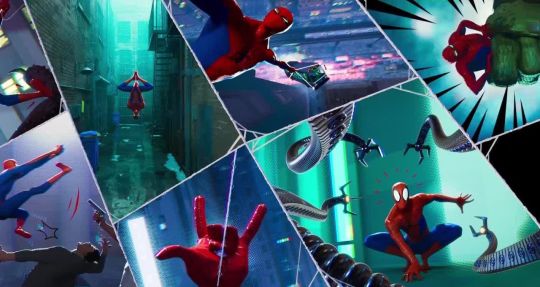
Figure 1 Persichetti, Ramsey, Rothman, “Spiderman: Into the Spider-Verse”
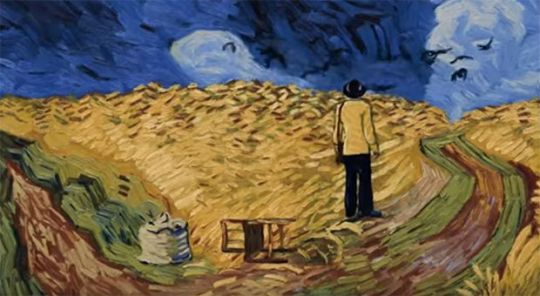
Figure 2 Kobiela, Welchman, "Loving Vincent"
The Impact of Visuals
As with other art forms, anime has its general groups where you can expect a certain art style to go along with the concept; seinen (mature themes) are often done with more darker schemes and muted styles, shounen (aimed at boys) is brighter and smoother, hentai (animated porn) focuses on exposure and shojo (aimed at girls) is bubbly and sparkly. While there are these general groups, there are subgroups that contain their own styles, and even then, there are always exceptions. As mentioned before, Toilet-Bound Hanako-Kun is one of these exceptions.
As stated on Mangakalot, Toilet-Bound Hanako-Kun is a shounen that includes comedy, supernatural, and school life themes. With these themes, the first thought would be to compare this to shows such as Noragami and Natsume's Book of Friends. Both Noragami and Natsume's Book of Friends are stereotypical looking anime with thin lines, dry colors, and standard scenery. While these shows are impressive with their storytelling and inclusive to supernatural myths, the amount of uniqueness and creatively put into the art style does not instantly draw the viewers in.
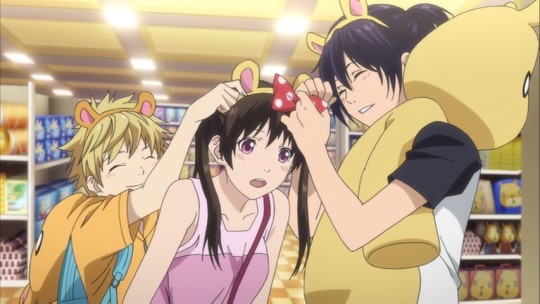
Figure 3 Tamura, "Noragami"
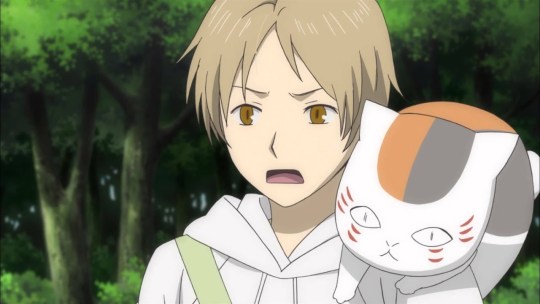
Figure 4 Miyake, "Natsume's Book of Friends"
Although I can go on and describe Toilet-Bound Hanako-Kun’s animation and background, James Beckett from AnimeNewsNetwork summaries it perfectly: “The environments feel hand-crafted, like they were plucked out of an especially evocative picture-book, and the way the show uses overlays of comic panels to break up some of the gags and establishing shots makes everything even more painterly.” This kind of exceptional work is common with the producers and directors of the show. As reported from AnimeNewsNetwork, Studio Lerche employed director Masaomi Andō, writer Yasuhiro Nakanishi, character designer Mayuka Itou, and animation producer Yūji Higa. Both Masaomi Andō and Yūji Higa have previously collaborated for a child-like show, Hakumei and Mikochi. With this team, they would go forward to produce another amazing series.
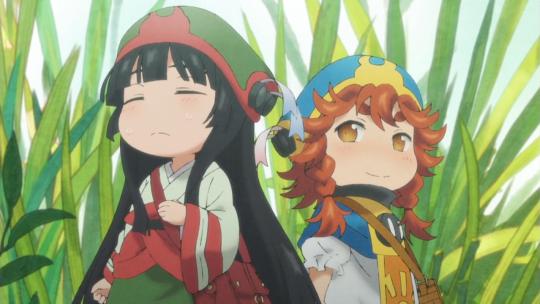
Figure 5 Andou, "Hakumei and Mikochi"
There are three important factors that go into making Toilet-Bound Hanako-Kun series’ art special: manga frames, vibrant colors, and creative lighting.
Manga Frames
When discussing this subject, it is important to remember its origins. When reading manga, the frames and panels are outlined boxes stacked against each other that contain drawings and words. This concept is common across manga and comics alike but employing this type of style of boxes containing drawings is not common in anime. As referenced at the beginning, the American movie Spider-Man: Into the Spider-verse uses the same notion with it being a parody towards superhero comic books. Toilet-Bound Hanako-Kun does this in a similar fashion with its manga-inspired animation.
(Below will be images for this example) Episode 6 of Toilet-Bound Hanako-Kun features many examples of manga frames, but for this example, we are focusing on a screencap from time 3:42. The screencap has two visual planes, in the background is an open book with a red page reading “Future” while in the foreground is Yashiro Nene’s, the main character, face being shown within white manga-panel borders. This image shows an interesting way to convey Yashiro talking while still being able to see what she was talking about on-screen. This scene is comparative to the one drawn in the manga. In the manga, the panel that has the book and “Future” is read first, then the next frame has Yashiro talking about what she is looking at. The way the producers decided to adapt to this scene is interesting; they were able to see the original concept and impact, but also integrated the feeling of being able to still see the first image while also continuing to read/watch on.
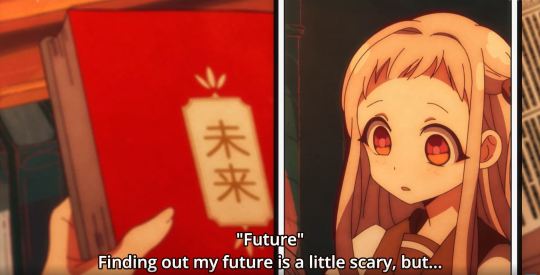
Figure 6 Andou, "Toilet-Bound Hanako-Kun" Ep 6
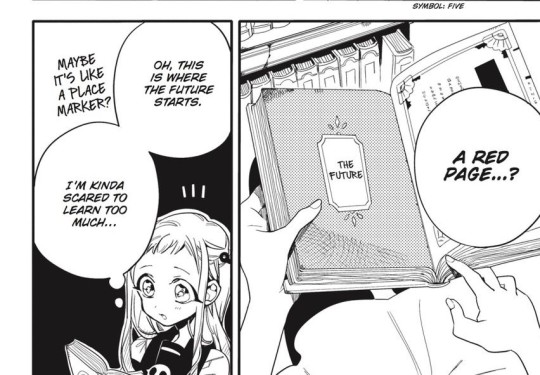
Figure 7 Aida, "Toilet-Bound Hanako-Kun" Chp 11
Vibrant Colors
Different anime may use color schemes to enhance themes, specific events, or symbolism. Color is everywhere in anime, and it is important for the animators to place certain colors in places to bring meaning or impact to the watchers. A popular example of this is in JoJo’s Bizarre Adventure where the color scheme inverts at random yet important times during the episodes, which brings about the weird and unique flare that this series holds. A series does not need wild color changes to be recognizable.
The very first noticeable feature of Toilet-Bound Hanako-Kun is how bright and lively the art looks. James Beckett’s description that this show looks like a picture book is accurate in this sense. Children’s books often have bold and contrasting colors to allow for easy viewing and longer attention spans. Rachel Pancare wrote a Sciencing article title, “How Do Bright Colors Appeal to Kids?” which states, “Bright colors catch young children's eyes because they help kids to distinguish objects from one another in their field of vision. Children spend more time looking at bright colors as opposed to looking at muted shades or pastels.” While this is true, some of the tones and circumstances within the show are not child-friendly, and even then, the coloration and art style are still able to bring the fear that is needed.
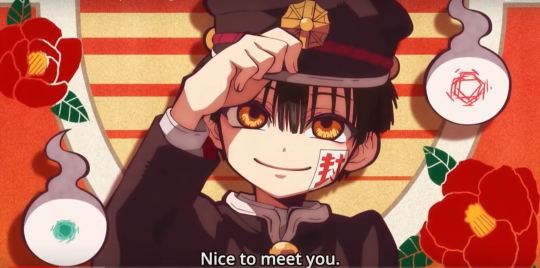
Figure 8 Andou, "Toilet-Bound Hanako-Kun" Ep 1
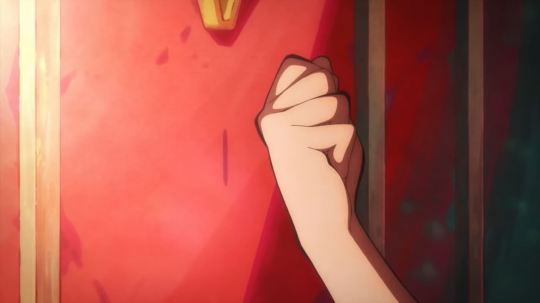
Figure 9 Andou, "Toilet-Bound Hanako-Kun" Ep 1
Creative Lighting
Lighting can be used in many different forms; it is used to brighten a landscape, a special character or object, or to create a certain atmosphere. In the average anime, lighting may not be diverse but may be only used to brighten the landscape so that the viewers can watch. There would be no major variation or casting that would change the mood of the scene. At times, there is seemingly no direct light source, but just everything is filled with brightness by either the sun, indoor lights, or for no reason. If the setting is at night, a streetlight may light up a character but that is seemingly the only option. Incredible anime typically takes a dive into using light sources and shadows dynamically, especially when there is a dramatic scene or an object that needs to be emphasized.
Toilet-Bound Hanako-Kun possesses the traits of having various light sources and accurately placed shadows, but there is another layer that is added. An integral part of the art style is that light can take a variety of shapes, but usually hexagonal. The pictures below demonstrate this; a light that emanates from the lamps and the lenses flare are hexagons, providing a creative change other than the usual faded circle of light surrounding an object. The other light sources are the light blue, glowing gems and the sunlight from the window. These two light sources provide the rest of the scene to be lit but within proportion to how bright the source is. Shadows are used accurately as well, causing darkness on the two character’s backs as well as slopping downward on the stall doors. These small additions can contribute greatly to the finished product and can transform how a scene is seen and the feelings that are derived from it.
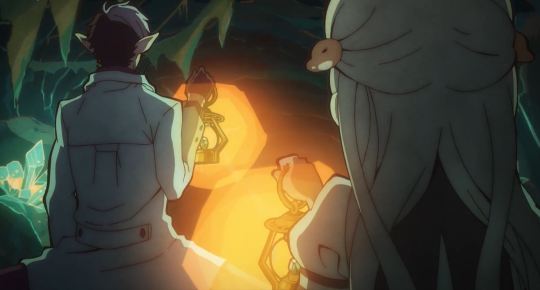
Figure 10 Andou, "Toilet-Bound Hanako-Kun" Ep 6
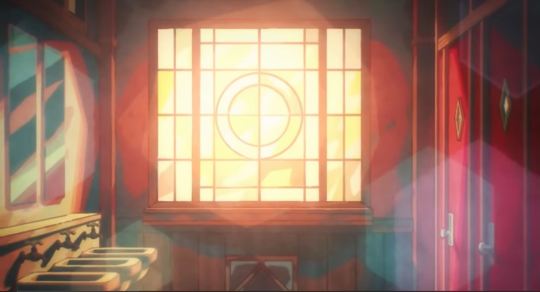
Figure 11 Andou, "Toilet-Bound Hanako-Kun" Ep 1
Conclusion
The three essential components to Toilet-Bound Hanako-Kun are creative lighting, vibrant colors, and manga frames. Analyzing and discovering what goes into a series can improve your experience and create a deeper devotion to the content. With this being said, not all shows that have the typical animation style and dull background are bad, but that they need to be analyzed in other areas and be appreciated in those. Toilet-Bound Hanako-Kun deserves praise and attention for its art style, and studios should look after this show and put forth the effort to make more series like this.
When considering what new series, you may watch or if you would want to stop watching a series, stop and think for a moment, “Does this art style impress me? Was the effort of the animators shown?” If the answers to the questions is “yes,” then I recommend that you follow through and continue watching that series. While storytelling and character development are important aspects to a show, there is more to the story than that. So, take a minute, turn the volume off on your favorite anime and watch—does the art tell a story? Does it make you laugh, scared, sad, or any emotion? Looking out for these feelings is important, and so is analyzing why this show may look so wonderful, because the smallest details matter the most, and it shows the dedication and love the creators have for the series.
4 notes
·
View notes
Text
The Real Reason the Blue Power Ranger Was Killed Off So Abruptly
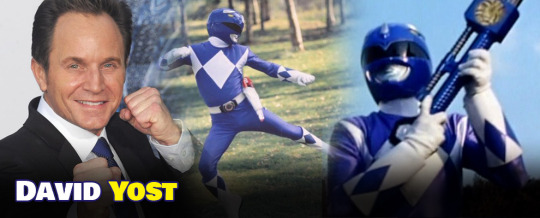
The real reason Billy Cranston – The Blue Power Ranger – was killed off the 1990’s epic – Mighty Morphin’ Power Rangers
David Yost
The longest running Blue Power Ranger of all time The second longest-running Power Ranger of all time The most memorable hero in my entire life - Billy, played by David Yost
“You know the funny thing about morphin’? You don’t appreciate it until you can’t do it anymore!” – Billy Cranston/David Yost
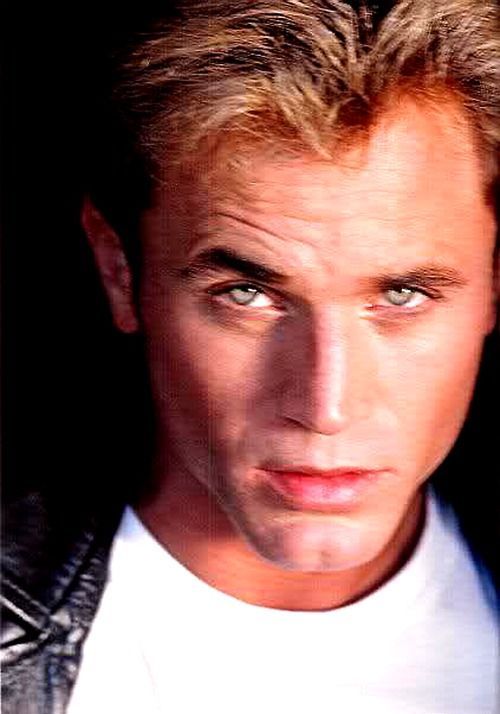
I’ve spent 25 years of my life, off and on, wondering why Billy, the greatest Blue Ranger and Superhero of all time (in my humbled opinion) left the show so abruptly and why the way they “killed” him off was so out of the blue (no pun intended). Until now, I had no idea why. Which is why technology and the internet have become such an incredible way of learning information and connecting with the entire world. The story, as I understand it, and as I read more about what happened, makes me so mad inside that it makes me want to turn back time so that he could have continued on his projected trajectory. I’ll let Billy tell you first, in his own words, what happened, and then we will discuss it further.
“Um, I, I walked off set one day, during the middle of lunch, halfway through the day, I just made a decision, I’d been thinking about it for a good week, and the reason that I walked off is because I was called a “fa**ot” one too many times. So, um, I had just heard that several times while working on the show from creators, producers, writers, directors.” -David Yost (Source – David Yost, IMBD) *-I will be sharing the entire IMBD Interview at the end of this piece.

So, let me get this straight. A creative team for one of the most prestigious stand-alone superhero franchises made one of their most talented and devoted cast members walk off the set because they continuously called him a faggot!? This, to me and a lot of other people, is absolutely flabbergasting. According to David, the creators would pull other members of the cast into a private room to ask about his sexuality. While David hadn’t known it was happening. This is too much. It was 1993. How could it have been so surprising that a cast member was gay to a bunch of artistically inclined producers? Furthermore, why would it have caused them to belittle him about it and isolate him within the team that he worked in? This is what David said,
“And I know that my co-stars were called in a couple of times to different producers’ offices and questioned about my sexuality, which is kind of a humiliating experience to hear that and to find that out.” -David Yost (Source – David Yost, IMBD)
I cannot believe that this happened during the production of a television show that would go on to teach me and the rest of my generation how to be fair to everyone as individuals, work as a team, respect our planet, help others, and ultimately save the world. This show made me who I am today. What I’m starting to realize is that maybe it was the actors all along that taught me these things. I mean, I must give the writers their due credit, but I will not be about to credit them for ultimately pushing out the best part of the show, in my eyes. Billy was my hero. Billy was the one I inspired to be. Is the one I inspire to be. When we watch these shows as children, we interact with the shows as if we were in them ourselves. We become friends with the characters, and we aspire to be them. We truly believe that we can be them. We do carry that into adulthood and throughout our lives. We never forget. Never…forget.
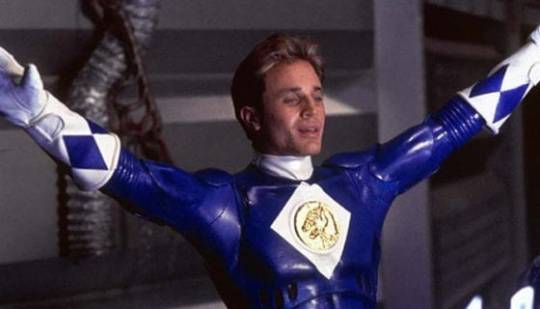
I am a gay man. I never even knew that Billy/David was even gay! (though, I don’t believe Billy was a gay character. I’m starting to think otherwise) It didn’t matter to me. I mean, I was seven when Power Rangers came out, but it was only another year of my life before I knew I was gay. If I had known then what I know now, I wouldn’t have continued watching the show and then devoted my time, instead, to fighting a battle worth fighting right along-side my real hero – David Yost.
This is something else David said,
“It’s not that people can’t talk about me and have their opinion about me, but continuing to work in an environment like that is really difficult, and I myself was struggling with who I was or what I was, and to be …made fun of on some level or to be stereotyped or put into a category in sort of saying ‘you’re not’ – basically, I just felt like I was continually being told that I’m not worthy of where I am because I’m a gay person and I’m not supposed to be an actor and you can’t be a superhero.” -David Yost (Source – David Yost, IMBD)
Let’s let that sink in for a bit. Just replay it in your mind – “I’m not supposed to be an actor and you can’t be a superhero.” This blows my mind. And not in a great way. In a flabbergasted kind-of-way. Can’t be a superhero. Well, if anything, it makes him more of a superhero to me that he would give up his place as a leading Superhero just to be able to tell my generation that it is not okay to allow people to tell you what you can and cannot be just because of who you are, and/or what you are. Because it’s not. It’s not okay. He was, is, and always will be The Superhero in my mind. Billy Cranston, the Blue Power Ranger, will always be my Superhero of choice. Why? Because he was nerdy and smart. He wasn’t a karate genius. He didn’t have the brick-shit-house body that the other Rangers had. He was exactly who he was and still managed to be an integral part of an incredible team of Superheroes that saved the world. Gay or not – he was the sole reason that the team was able to modernize, communicate, and understand their purpose. So, what in the hell did they mean when they told him that he would never be an actor or a Superhero?
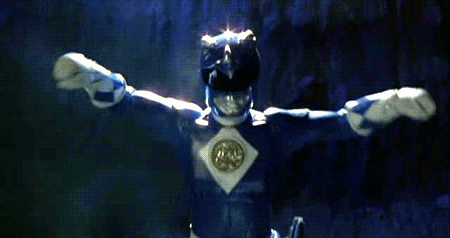
I vividly remember watching this very episode where they killed off Billy Cranston. I gasped. As did my friends. It came out of nowhere. In fact, Billy was to go on for much longer alongside Tommy and Jason. So why would he so suddenly be taken out of the show? But it was the 90’s. We didn’t have immediate access to news about things like this. This moment broke the kid’s hearts and we were supposed to just sit around and accept it. It was so sad that it wasn’t long after Billy’s demise (David’s demise) that I stopped watching the show. Tommy Oliver was also a leading hero in my life, but it wasn’t enough. I was an aspiring Power Ranger because of Billy. And Billy was never to return. I was heartbroken. And I didn’t even get the courtesy of understanding why.
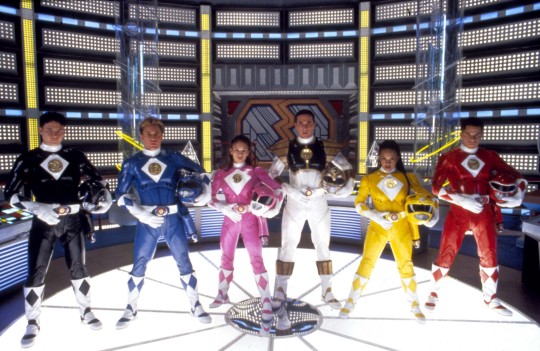
This story is something I am greatly passionate about. I really hope one day to meet David Yost at a Comic Con. I hope one day to be able to shake his hand and tell him how grateful I am that he helped shape the person I became and continue to grow into. I hope, one day, that kids will get to see their heroes in the way that they are supposed to – just like them. I hope one day, that these pathetic judgments dissipate into thin air. I really do. I hope one day that we can all move on from these stereotypes and isolations. I really do hope that one day we can all just be free to be ourselves without having to worry about what someone else is thinking about it. Unless we choose to go onto American Idol, there is no need to have people judge you for being who you are.
David Yost will always be in my heart, soul, and mind because he was the one that taught me to always do your best, give it your all, and allow people to come around and realize that you are worthy of being on the team. He taught me that being who I am is worthy of anything I set my mind to. Whether that be an actor, a human or – A Superhero.

As promised, here is the full interview with David Yost via IMBD: (I have copied and pasted it so that it is 100% quoted from him)
[Being asked on why he left the Power Rangers franchise] That's a good question and it's actually a really serious question for me, so if I cry, I apologize in advance. All that me getting old and going off to some foreign planet or something ... I don't know - I wasn't there for any of that. I don't know anything about it, I've never watched the episodes. Um, I, I walked off set one day, during the middle of lunch, halfway through the day, I just had made a decision, I'd been thinking about it for a good week, and the reason that I walked off is because I was called "f***ot" one too many times. So, um, I had just heard that several times while working on the show from creators, producers, writers, directors. It's not that people can't talk about me and have their opinion about me, but continuing to work in an environment like that is really difficult, and I myself was struggling with who I was or what I was, and to be ... made fun of on some level or to be stereotyped or put into a category in sort of saying 'you're not' - basically, I just felt like I was continually being told that I'm not worthy of where I am because I'm a gay person and I'm not supposed to be an actor and you can't be a superhero. And I know that my costars were called in a couple of times to different producers' offices and questioned about my sexuality, which is kind of a humiliating experience to hear that and to find that out. So there was just a lot of issues; it just felt like a bad marriage. And I could either stay and do the second movie and finish six more months of the show or just - I don't know, I guess I was kind of worried about my life. I was worried that I might take my own life. So in order for me to get a handle on what was going on, I needed to leave when I left. And so that's sort of why I left the show.

Please stop judging people for who they are. Please stop making people feel isolated because they are different from you. Please allow people that could really change your life, be your best friend, and really do some good for the world. Allow it. Because it could be the best thing you ever did.
Remove the negativity and move into the reality of freedom. We all want freedom. We all want to help. We all want to do good. We all want to just be. Just be.
You are beautiful no matter what they say. Live it. Inspire.
Thank you for listening,
Allow this story to help you become a better you.
JR McWilliam

Credits
David Yost – for being honest and sharing your story. I am at least one person who will share this story and continue to fight this battle with you – because some battles are necessary and should be fought. But much like the expectation of the Power Rangers, I will not instigate these fights and I won’t use my powers for my own gain.
IMBD – for the interview. I would never have known this story without it. I have done my absolute best to make sure I didn’t paraphrase.
Google Images – to a multitude of artists and the original photographs from the show Mighty Morphin Power Rangers circa 1993-1996, thank you.
The Artists – thank you for continuing to capture the beauty of the Power Rangers – you are recognized and appreciated.
Note
*-This has not been approved by David Yost or the creators of the Power Rangers. If I was able to communicate this with them my life would be much different. But I hope I have only stated facts, my opinion to the best of my ability, and done David justice by sharing this story. -To the creators, producers, and writers of the Power Rangers – please know that I forgive you, you were clearly misinformed. All I can hope is that you go on with your careers and your lives without ever making that same mistake again.
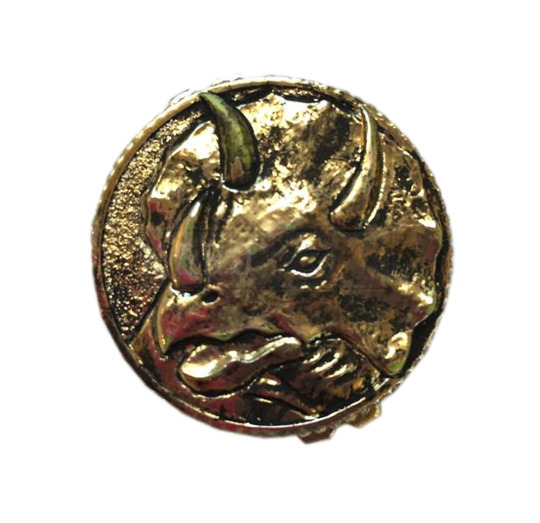
JR McWilliam
#bluepowerranger#blue power ranger#power rangers#powerrangers#mmpr#mighty morphin power rangers#saban#homophobia#billy#billy cranston#davidyost#david yost#bullying#the real story
44 notes
·
View notes
Note
about the fandom things, I want to ask from different fandom :) 1. Harry Potter fandom 2. RE: Aeon Cannot think for number 3, so I guess that's all. Thanks
Harry Potter (books, not the film adaptations since I stopped enjoying those after the third one):
– Favorite character: Luna Lovegood. I read Philosopher’s Stone when I was like… 9, I guess? And CoS, PoA, GoF, OotP immediately after as I devoured those books as soon as I finished PS. So, when HBP was launched in 2005, and then DH in 2007, I was already one of the anxious fans waiting for the saga’s conclusion. I never revisited it, though – but as a child (and later, pre-teen) I always felt some sort of peer pressure from the fandom to love Hermione the most – and ok, I do adore her –, but when I think back to what I thought and felt when I was reading the books, the character that always made me excited for her appearances, lines and overall participation was Luna;
– Least Favorite character: Draco Malfoy. God, his type of character just annoys the livin’ fuck out of me. The spoiled mean brat and dirty coward who can easily serve as an allegory for the I-have-a-problem-with-drugs rich teen. As one TV Tropes editor put it, “an unrepentant Upper-Class Twit Dirty Coward school bully”. Hahahaha, I just… despise this character;
– 5 Favorite Ships (canon or non-canon): Hinny, Romione, Snily, Ronks and Marthur;
– Character I find most attractive: Harry! I think book!Harry’s personality kinda shaped my interests in men? Hahaha I have a huge weakness for the “Socially Awkward”, “Brilliant, but Lazy”, “Heart of Gold” and “Hot-Blooded” type. Actually, my boyfriend is exactly this type of guy lol;
– Character I would marry: Ginny, probably? But like, she and Harry are my bisexual dream;
– Character I would be best friends with: Hermione and Luna since they remind me a bit of my real life best friends (Natane and Isabela);
– A random thought: Rowling could’ve been more creative with the next generation’s names? That “let’s name all of our children after dead relatives and lost beloved ones” trend that she influenced in fandom is… bad;
– An unpopular opinion: I wish J. K. Rowling could just shut up already and let this franchise have its deserved rest. Also: movies 4 to 7 are bad, but The Cursed Child and FBAWTFT are like AWFUL and I wish they never had the chance to exist in the first place;
– My canon OTP: Hinny;
– My non-canon OTP: Sirius Black & Happiness;
– Most Badass Character: I’d say Hermione since she’s the one responsible for coming up with the solutions for most of the narrative conflicts, but I honestly think it’s a tie between her and Ginny (both of them are truly awesome);
– Most Epic Villain: Bellatrix Lestrange. Name a more iconic and plainly HATEFUL female villain in this saga, I’ll wait;
– Pairing I am not a fan of: Harmony or anything with Draco;
– Character I feel the writers screwed up (in one way or another): I don’t think Rowling did this to any of her main characters in the original saga? Maybe Lupin and Tonks deserved better, but oh well;
– Favourite Friendship: Fred and George Weasley;
– Character I most identify with: I don’t think there’s one in Harry Potter??
– Character I wish I could be: Nymphadora Tonks! I truly dug that Metamorphmagus shit.
Aeon
– When I started shipping them: In 2002, when I played RE2 for the first time in N64. I was eight years old, barely understood English, but something in the way Leon jumped in front of that bullet to save her just… struck me;
– My thoughts: I actually think A LOT about those two, so I have plenty to fill into that question, it’s better if you check my Aeon fandom tag to get a more comfortable and organized sneek peek in my thoughts for them.
– What makes me happy about them: The circularity in their relationship, their devotion towards one another (teaming up, saving each other’s asses), the fact that almost 15 years later they still CLEARLY love and pine for each other;
– What makes me sad about them: That they can’t be together in a conventional style? Like, settle down and stuff;
– Things done in fanfic that annoys me: Oh man, there surely is a lot. But most of those things are related to the distortions fandom is prone to make concerning Ada’s characterization. Like portraying her as if she’s some sort of psychopath or sociopath – incapable of empathy or completely lacking remorse, and that Leon just picked her interests for some alien kink reasoning??? Oftentimes Ada is perceived as a pure play of the Dragon Lady trope, not taking into consideration that her characterization throughout this franchise averted the stereotypes associated with that trope SEVERAL times – by the way, let’s be frank here, in most cases people don’t want Leon with Ada not because Leon and Claire would be healthier, but because Claire is white like him, so, automatically morally more worthy of him, and there you go, I spilt the tea. Ah, and that trend of infantilizing Leon, portraying him as some sort of pure-naïve-and-tame Manchild – god, this just kills me. This incapacity to understand that even though this character is good and nice and lovable, he’s also more complex than that and have agency in this fuckin’ narrative?
– Things I look for in fanfic: The author avoiding those things I hate that I just mentioned it’s good enough, but what really makes me go all !!!!! in fanfiction is when the author… detours? a bit of the usual “Leon and Ada can’t be together because of their jobs, circumstances, worldviews, blablabla” – like, I know that already man (and really I LOVE IT), but give me some fluffy and introspection now and then for a change, I don’t know. Show me their love only, without the drama, y'know? Some good examples of what I’m talking about are “sometimes i still feel the bruise” and “a fool for you”, both by by tenienteross (she’s great, go read everything she wrote for them ASAP);
– My wishlist: I don’t really have one because Capcom always delivers a very good job in portraying and further developing their relationship, hahahaha, I’m a very spoiled fan in that sense, BUT… I think one more on-screen kiss? Maybe?;
– Who I’d be comfortable them ending up with, if not each other: No one. And that goes for both. These two couldn’t get over each other for the past FIFTEEN YEARS or so and then suddenly Leon ends up married with kids with someone else? This sounds dumb and I hate it, so no thanks. If Capcom wanted to convince me that Leon could settle with someone else, they should’ve done this when Leon wasn’t getting to his early 40s.
– My happily ever after for them: A situation that mirrors RE2 in the sense that they have to survive a similar outbreak, one more nightmare, and they partner up for it – but now it’s so different from all those years ago, they’re much more comfortable around each other, their bantering and flirting sounds a lot more like that of a married couple, they’re older and more experienced and mature and in the end, when they’re about to have to choose each other again and then part ways because they know that’s what it has to happen (because they can and they do always choose one another, but staying together is more than what they bargained for), Leon asks for her to stay. Out loud. She replies to this by smiling lightly and saying that she thinks she’s done contributing to her job and think it’s time to be closed for business. We see Leon smiling, peacefully, as the scene fades to white.
#Harry Potter#Resident Evil#Aeon#Leon x Ada#Ada x Leon#Q&A#Fandom Stuff#Fandom Memes#text post#asks and answers#rebel-the-way#Aeon fandom#//#sorry for taking so long to reply to you#I was very busy with work
40 notes
·
View notes
Text
VLD Season 7 Reactions
My inbox has been busy non-stop since Season 7 dropped, and I thought I’d share a few with you, @dreamworksanimation and @voltron, just in case you’ve missed the fandom’s reaction to the new season.
It's sad that we've gradually gone from being excited to new seasons to feeling worried and skeptical. There was a lot of dread in the fandom instead of anticipation for s7 and the interviews fueled it. People used to make intriguing theories but now it's all "how s7 would have been better" and "this is a crack theory but knowing vld it might be canon" We are supposed to be right before the grand finale of a space opera but people can't wait for it to be over. What a great way to end a series!
The grand space opera became a space tragedy in one season. We’ve waited for a payoff that will seemingly never come - including the end of the lion swap. An introduction of a new mecha should have exciting but was overshadowed the permanent demotion of Allura from commander to foot-soldier and the banishment of Shiro from Voltron and his lion, the latter with whom Shiro shared the strongest bond. This also ended Shiro’s internal struggle of “can I be worthy of the paladin mantle” with the answer, “no, you can’t be.”
Season 7 could have the fandom’s resurgence, after a strong Season 6 showing, but from the standpoint of almost everyone in my inbox - the fandom is just tired and ready to move on.
More under the cut.
I commented on a Youtube video how I didn't like the Atlas consolation prize, and someone replied saying I need to stop because they “clearly“ aren't trying to bench him or anything. It took everything I had to not respond with a rant.
Wanting to rant is understandable. I’ve had this conversation a few times - messages, on my blog - about why Shiro being in Atlas isn’t a satisfying conclusion to his character’s arc. It’s not about him being benched, per se - though he is. Shiro’s internal struggle was deciding if he was worthy to be a paladin after everything that happened to him - and what he had to do to survive. By putting him in Atlas, the show is saying he is unworthy of the Black Paladin mantle.
Sending this demoralizing message in the same season that we learn Shiro is also LGBTQ+ representative is reprehensible but perhaps ignorant. Saying that Shiro is also unworthy of the Black Paladin mantle as a multiple-minority, LGBTQ+ character with PTSD and a disability, is unconscionable.
I honestly think the dream works execs weren't told the full story on what they were planning with Shiro. The way they speak about the Atlas, the DreamWorks execs seemed to be left out of the picture as to how much distance they put between Shiro and his team - or how he goes half the season being nothing more than a background prop. The way they say “the Atlas does something really cool“ makes me think they never gave the impression Shiro was going to be next to irrelevant.
Could be! But now it’s DreamWorks’ job to correct the issue. They need to come out with a statement, say that recognize there is an issue, and that they are taking steps to correct it. However, the only communication we’ve gotten from DreamWorks was JDS’s apology (and subsequent tweets by LM), and that letter was ineffective. It addressed queerbaiting, not what the EPs did to Shiro, a LGBTQ+ character, or even to Adam, Zethrid, and Ezor.
So I’m not sure if DreamWorks’ execs have acknowledged that there are offensive and harmful messages in Voltron, especially Season 7.
My deepest wish was that after they came back from Sven's reality, they actually went to another reality, very similar to the original and never realized, and in the end of season 8 slav will tell them that and they'll go back to their own reality, and continues on s9 with Shiro being actually alive, just captured again by haggar, then rescued and he is the bp for ever and keith is back to red and allura is back to castle and lance is like blue i missed you and blue is like [expletive deleted] me too the [expletive deleted]
Duuuuude. Can we make this canon?
I know being salty helps nobody least of all myself, but I'm so irked that the EPs pat themselves on the back for making Shiro gay, when a)they don't get that Adam's death is an issue that goes way beyond OTPs, b)they did kill Shiro, c)even though Shiro eventually got back, Kuron didn't, not in any piece of actual canon, and presumably Kuron was gay too so that's 2 dead gays (4 if you count the implied lesbians), and d)apparently Shiro being Asian, mentally ill and disabled doesn't matter as rep
Being salty helps. Really. It helps DreamWorks to determine what worked well and what didn’t in their latest season.
Though I understand how some fans felt queerbaited by VLD, the fact that it is the only thing addressed in JDS letter tells me DW is waving a hand over all the other implications. DreamWorks didn’t want to address all they did to Shiro, so instead, they apologize for the least offensive issue and hope people will be satisfied. (From my ask box, they are not.)
melissa18999 said: So even the execs thought that shiro was an interesting character. I can see why. The writers wrote him to have one of the saddest backstories ever and he’s the only human on the team that has experienced the galra’s bullshit first hand. The other 4 paladins pilot voltron because they’re told to. There doesn’t seem to be the same drive that shiro had. Sure there’s Pidge but she was the one trying to quit voltron to save her family. removing shiro exposed the others lack of a call to action.
It exposed that practically none of the other characters had any stakes in Voltron. We can say that Hunk received his stake in Season 1 when fighting for the Balmera, and Keith’s stake was Shiro. Lance? Nope. Never really had one and really never got one, considering his family was safe and sound on Earth. You could make the argument that he cares for Allura and wants to be a better paladin because of her, but...we don’t actively see him trying to do it for her. We saw him trying to be a better paladin before she and he connected.
And now they’ve removed the aforementioned motivating character from Voltron. Yeah. Not cool.
The thing about the execs liking Shiro and demanding that he gets a better role... is that we always hear about creatives who want to get rep on screen but the EEEBIL executives say no. And here we have a case where the creatives saw a mentally ill disabled poc character that broke all stereotypes, and they could see no place for him in the cast, while the execs recognised his incredible potential and wanted him to shine. So I have zero sympathy for the EPs here. The execs were RIGHT, damnit!
The reason I liked VLD S1/2 so much was because it broke tropes. Shiro is strong leader but also needs help. Allura is a warrior princess and isn’t scared to go toe-to-toe with the emperor of the universe. Keith and Shiro hug. Look, no matter how you view their relationship, hugs just don’t happen in cartoons, especially between men. So I just loved that part so much. and it made Voltron progressive. (You can share and show your feelings and not be scorned for it.)
Oh, and Lance was originally the heart of the team, not Allura. She became so after moving into Voltron, but having a male character being the heart? That was groundbreaking, too.
Sure, VLD had its issues, but the show was empowering to so many marginalized groups - until Season 3.
perhaps the worst part of Shiro's placement is that he's effectively become the side character of an ENTIRELY DIFFERENT SERIES. I've started watching robotech, and CANNOT see the atlas as anything but the ship from that (down to the transformation), or the MFEs as a mix of Vehicle Voltron and the robotech fighters.
I would argue that the worst part about Shiro’s placement is that Shiro is no longer a part of the eponymous character, has no family, and is a multiple-minority character who proved that he can not only be a part of the team but also be the strongest part.
And then Voltron decided to show people who identified with Shiro - that’s not the case. In fact, you can’t even be a part of the team or win your own battles. You have to rely upon others to do so.
But you have a valid point. That part’s bad, too.
Please note: I received more asks with VLD Season 7 reactions. I’ve answered some on my blog, but I’ve also deleted a few that were too harsh to post.
44 notes
·
View notes
Text
so my review for disenchanted is... it's fun. it doesn't go anywhere amazing, but there's some fun jokes and some fun characters. its an enjoyable watch with some characters that keep you watching, though i kept wanting them to wring more out of each episode, there is so much potential for a lot of the side characters.
as for characters, most characters aren't really fleshed out, so i didn't feel much connection to most of them, i only really care about luci tbh and bunty is sweet. i'm interested to see what happens with queen oona but seeing as most of her appearances have been small jokes or short appearances, idk, i'm not holding out for much development for her.
bean is good, in theory, though there's not much to her. they have a stereotype of what a non feminine woman is and keep falling back on it, falling back on her being drunk or high somewhere. we don't learn about her childhood, her education, her hobbies, her aspirations. her storylines revolve around her dad or elfo, mostly, under the guise of being about her journey.
some side characters become more interesting, like the kings advisor, odval, although i wish the secret society had been more than just a quick joke. others remain flat and uninteresting, clearly plot devices, not even offering jokes that are that good. i liked getting to learn more about bunty, and the king has some funny moments, but a lot of characters are forgettable. luci is a great break from the repetition or obvious storylines, he's unpredictable and chaotic and kept me watching. he's two steps away from being a fourth wall breaking character, narrating the events in his own way. love eric andres dry tone, luci is a great character i'd love to learn more about.
the pacing of the episodes is a bit random, there's no real connection between most of them and they don't always flow well, sometimes it felt like people's opinions and decisions changed randomly just to keep the plot going. the last episode repeated the same scene several times. the reccuring plot involving luci didn't really grip me and didn't go anywhere really, and has now been overshadowed by the plot of the last episode. i am interested to see where that goes, but i do wonder if the people who sent luci will get a moment to shine and be relevant again.
people keep comparing it to futurama, to the simpsons, but i don't think that gets us anywhere. it's made in a different era, set in a different era, made in different circumstances than for tv viewing. the voice acting is great, it's fun hearing familiar voices, and luci is reminiscent of benders carelessness (also reminds me of paul from the film paul which is a fave of mine), but it's a very different story. there are some weird vague mentions to things like feminism and gender spectrums but they fall flat, i felt unsure if they were being played as a joke or a reference and what the point of them was. there's also that random mention to cultural appropriation, speaking of which, the only two characters of colour are side characters, one completely just a plot device, with ambiguous race and not much depth. seriously guys? you put in elves and gnomes and lizard people but racial diversity was just too hard? put down the d&d handbooks and start being creative.
okay, i'll mention elfo, but briefly. he's annoying. i'm saying it, everyone else seems to be saying it, but what the fuck. it's not his obliviousness and naivety that's annoying, that could've been used well, but it's his crush on bean. i'm not invested, i don't care, it's not interesting. i really don't feel bad for this lil guy fancying a woman out of his league. they tried to give us a different female hero but still went with the 'poor nice guy who she ignores' trope? she deserves what leela and lisa didn't get with the guys chasing after them: the freedom to say no and have it stop. it added nothing to the plot, it became his whole character arc instead of learning to be bad and explore a new place. i'm glad nobody else seems to like him or the idea of him and bean ending up together. seriously, it's so overused, esp in groenings works. i just didn't have the patience to care about him any more as soon as i saw where it was going. bean escaped his advances, but barely, and suddenly she really cared about him despite being ambivalent earlier. the time progression didn't seem real enough to amount to that much character development, the time passage wasn't even clear, it just felt like ten episodes and suddenly luci and bean really cared about elfo all of a sudden. can't relate.
ok, elfo out of the way, what did i enjoy? the scenery, the banging theme song, the good one liners, every character john dimaggio voiced, that one time luci got captured that was quite fun to watch, the whole talking cat thing, uhh, some other stuff. seriously, you can enjoy watching it and not feel too bored, it's just the repetitive tropes that get a bit dull. i kept watching for the potential, a lot of the time. hoping for things to go farther than they did. the earlier eps are fun, the later ones i felt had odd pace and sudden character development/change and a lot of repeated content.
in the second series i want a lot more from these characters. they tried to fit in like three plot twists when most people would have preferred more character exploration, more believable development between bean, elfo and luci as friends. a lot of the episodes were bean and friends get drunk, fuck stuff up, go back to see the king. i don't want more of that in s2. i expected more depth to the plot seeing as multiple writers were involved in gravity falls, but it's ok if it's just fun too, but decide which you're going for because atm i'm not sure how seriously to take the twists or not.
i'd love to see more of hell, learn more about luci. i loved the mention of him having a 9 to 5 job in hell, there's so much that could be explored there, and robot hell was a blast in futurama. seriously, bring back dan as the dancing devil, that'd be fun. i'd have rathered luci having odd jobs from the devil than having two random people apparently controlling him but doing absolutely nothing at the same time. in s2, recycle the tired tropes into something new. throw out the 'old hooker' trope and put in more three dimensional women. get rid of the 'strong female character' idea you have in your heads and actually write a real female character. please, god, get more female writers, i can tell when a woman is written by a man and it's boring. i feel they need to let shion takeuchi have more involvement because i bet she'd do a better job with a lot of these elements but alas she's literally one of only three women on the team with any major involvement, and it shows. it's a show centred around a female character yet it's mostly all decided by men. it's 8 men to 3 women as far as i can tell. and only one person of colour, afaik. it really shows. i'm not surprised, but more people should be pissed off about this. ridiculous.
don't do anything with elfo he's fine where he is just leave him there. bring back tess the giant i want to know more about her. please let oona and odval have a friendship where they bitch about the king and have medieval scrabble nights or something. let literally any women interact with each other without hating each other or talking about men. give bean a girlfriend. don't give pendergast any more screen time people are obsessing over him for some reason and he doesn't deserve that. let the queens be friends or something. let them date. too many women hate each other in tv i'm tired. ramp up the goddamn puns i know u have more stored somewhere and the scenes of shop names etc are fun. have bean learn to drive a horse and cart or get a job she's good at or learn a new skill or make a female friend or something more than having her get drunk and fight her way out of a situation with no real consequences. ok i'm done.
#disenchanted spoilers /#tried to keep it vague about plot#i didnt expect a Lot but there was so much potential with just everything#make next series longer or longer episodes or something#i know its not some gravity falls bit twist type thing#but they hammed it up in the intro images and things#i thought wed get more about the luci situation#some ppl were villains out of nowhere#felix meows
6 notes
·
View notes
Text
The Boy On The Bridge & The Dangerous Myth Of The Autistic Robot
I want to begin by saying how much I love M.R Carey’s The Girl With All The Gifts! A highly original addition to the sci-fi genre, it centers on a race of human/zombie hybrids discovered in the fallout of a devastating apocalypse. Told through the eyes of Melanie - one such of these unsettling, eerily intelligent children - it paints a terrifying and unnervingly tangible picture of a decimated England. It was a book I found utterly impossible to tear myself away from, so when a prequal was released in late 2017 I couldn’t fail to check it out.
Set around 10 years before the original novel, The Boy on The Bridge follows the ill-fated former crew of the Rosalind Franklin; an elite team of soldiers and scientists who will become the first humans to encounter the mysterious ‘hungry’ children. It’s a intriuiging premise, promising to provide answers to the many burning questions left over from the previous novel.
But as much as I wanted to lose myself in this exciting tale of post-apocolyptic survival, devastated cities and fungal-plagues, I quickly found myself distracted by one specific character. A character who, from the moment they first appeared on the page, immediately began to grate on me.
They’re not someone I’m at all unfamiliar with. I’ve encountered characters exactly like him many, many times over. While once they were rare, today they seem to endlessly bombard us in movies, on TV, across countless genres of fiction. They are a character who embodies troubling, regressive cliches that – in 2017 – I was hoping we were finally beginning to see the back of. A character who is, supposedly, just like me.
His name is Stephen Greaves, and he’s autistic.
(TW for references to both the fictional and real life abuse of autistic children)
I should correct my previous paragraph by stating Stephen’s not ‘actually’ autistic. The author does have the forethought to pull the disclaimer-card of saying he might just have severe PTSD instead. It’s the same convenient ambiguity that always seems to precede terrible, regressive depictions of autistic people; Christopher Boone being another key example.
Considering that this is a kid who literally watched his parents get eaten by zombies, the idea that Stephen may have PTSD does feel fairly plausible. Probable even. But this still doesn’t change the fact that Stephen is heavily, heavily autistic coded. By which I mean he is yet another exaggerated stereotype of how neurotypical authors believe we think and behave.
From the moment he first appears Stephen is strikingly, undeniably ‘odd’. At 15 years old he rarely speaks, is terrified of physical contact and devotes much of his time to avoiding other people. He is a scientific savant who views the world through a detached, analytical lense and considers human relationships an unwanted distraction. This doesn’t stop him from forming one close relationship - with his mentor and mother-figure Dr Khan - but this is clearly an exception to a rule.
Like many other autistic caricatures in fiction, Stephen is obsessed with facts and has a neurotic preoccupation with the truth. More bizarrely, he is physically incapable of telling a lie. Like, genuinely physically incapable. If forced to lie, he will literally begin uncontrollably stuttering out the truth as though under some bizarre curse.
Out of all the myths regarding us that exist in fiction, the one that says autistic people can’t lie is the one that completely baffles me. Autistic people can lie. I told a lie just yesterday; ‘I’m not drunk’. A claim I refuse to believe was at all undermined by the fact I was unable to walk straight at the time.
Some autistic people are, in fact, talented liars. Parents of kids with pathological demand avoidance will attest to this. Neurotypical writers keep returning to this cliché under the misguided belief it offers us a ‘virtuous’ quality; it doesn’t. It’s patronizing and dehumanizing; dismissing us as individuals with free will and turning us in to the helpless puppets of some ‘robotic’ internal wiring.
And this is the fundamental issue with Stephen’s character: his uncomfortable robotic quality.
Unusually for an autistic character, a great amount of effort has been put in to exploring how Stephen thinks and feels. But this is only to emphasize how fundamentally different he is from other human beings. Stephen doesn’t function like a human being, he functions like a computer. His machine-like mental processes are depicted frequently, and in tedious detail. He is not a character who exists for non-autistic readers to relate to. He is instead constructed to be as strange, as baffling and as dramatically different as possible. Not because this is how autistic people actually are, but because we apparently make much more interesting reading this way.
A lot of neurotypical readers are probably wondering why – outside of the blatant predjudice, loss of relatable representation and piss-poor, lazy characterisation - the ‘robotic’ stereotyping of autistic characters bothers me so much. And that’s because outside the realms of fiction, the dehumanization of autistic people has devastating repercussions. The most harrowing example being the all-too-frequent murders of autistic children at the hands of their parents, and the disturbingly sympathetic news coverage that follows them.
These reports follow a distinct formula. They paint a tragic picture of the murderer; their ‘hellish’ existence as the parent of an autistic child, the eventual ‘breakdown’ that drove them to commit this ‘desperate’ act. They will gloss over incriminating details like online-evidence suggesting the murder was being planned weeks in advance, or previous accusations of exploiting their child’s disabilities for money or attention. We will hear all about their ‘mental health problems’, their manslaughter plea, how ‘dedicated’ a parent they supposedly were prior to stabbing, drowning or – in one inconceivably horrific case – burning their own child to death.
The one person they say little about is the murdered child.
Unlike other young murder victims, we rarely see quotes from grieving relatives or teachers about how they were ‘a delight to teach’ or ‘a bubbly, affectionate little girl’. We don’t hear about how they - like other kids their age - loved cuddles and bath-time and watching Peppa Pig. We often don’t even get a photo.
Instead we are presented with yet another faceless autistic monster who has driven their parents to desperation.
It gives me no pleasure to detail these horrendous acts of violence. I know this segment must be deeply distressing for many of you to read; it was harrowing to research. I’ve not included it because I wish to upset you. I’ve included it because I want you to understand that the dehumanization of autistic people across the media - the depiction of us as emotionless, affectionless and not quite human - is a very, very dangerous thing.
At best, it robs of us our identities as sensitive human beings who experience life in diversely individual ways.
At worst it legitimizes the abuse we suffer; turning us in to the deserving recipients of our own victimization.
And indeed, the way Stephen is portrayed in The Boy on The Bridge is only one half of the problem. The other is how the rest of the cast treats him. Stephen isn’t just treated with dislike by the other members of his team, he’s treated with open contempt. He is nicknamed ‘The Robot’, a cruel moniker that is used so frequently you’d be forgiven for forgetting his actual name. He’s called ‘emotionally disturbed’, ‘an idiot’ and a ‘fucking retard’; the verbal punching bag for the frustrations of a terrified and disillusioned crew. When a panicked Stephen locks members of his team outside during an attack, this abuse boils over in to physical violence and he is viciously slammed against a wall.
There are two very important things to remember when we talk about how Stephen is treated by the other character in The Boy On The Bridge.
This is the abuse of a literal child at the hands of adults twice his age.
This is abuse of a child at the hands of characters readers are sympathize with. Characters who have their own chapters, voices, storylines. Characters readers are not meant to always necessarily like, but are expected to relate to.
We are expected as readers to empathize with fully grown adults victimizing an autistic child. The bullying, isolation and violence Stephen is subjected to by the rest of the cast is presented as cruel, but seemingly understandable.
Because Stephen is different, and that makes them uncomfortable. And that is the only defence they need.
I don’t want anyone to leave this post with the wrong impression; I’m not writing this because I don’t want to see autistic characters in fiction. I do, desperately so. I yearn for characters I can relate to, characters who represent my own experiences. Autistic characters who, like me, who have struggled with a life-time of misdiagnosis. Autistic characters who are told they ‘don’t look autistic’. Autistic characters that struggle with subtle, frequently misinterpreted difficulties which are constantly overlooked.
Autistic characters who represent the sum of our real experiences, not creative interpretations of how non-autistic writers imagine we ‘might’ function.
I don’t want to see yet another tiresome savant with intellectual abilities way outside of human limitations.
I don’t want to be represented by caricatures so cartoonishly exaggerated they are unreIatable to most autistic people, let alone neurotypical people.
I don’t want to see the abuse I have suffered legitimized through the myth that my supposed strangeness ‘drove’ my abusers to it.
I don’t want to be shown the world through the eyes of another emotionally-detached robot, and be told that this is how people like myself think and feel.
Those are not my eyes, that is not my story.
24 notes
·
View notes